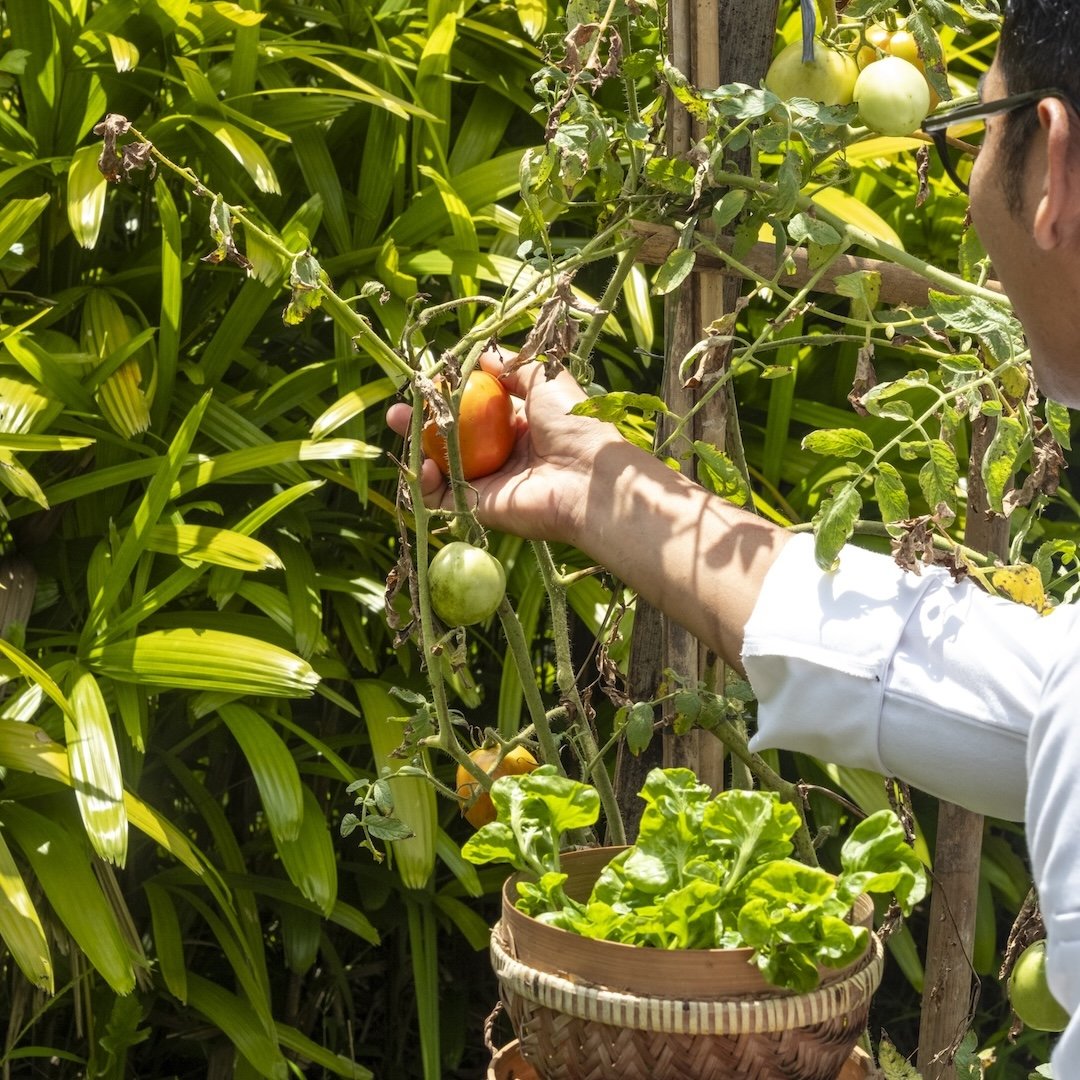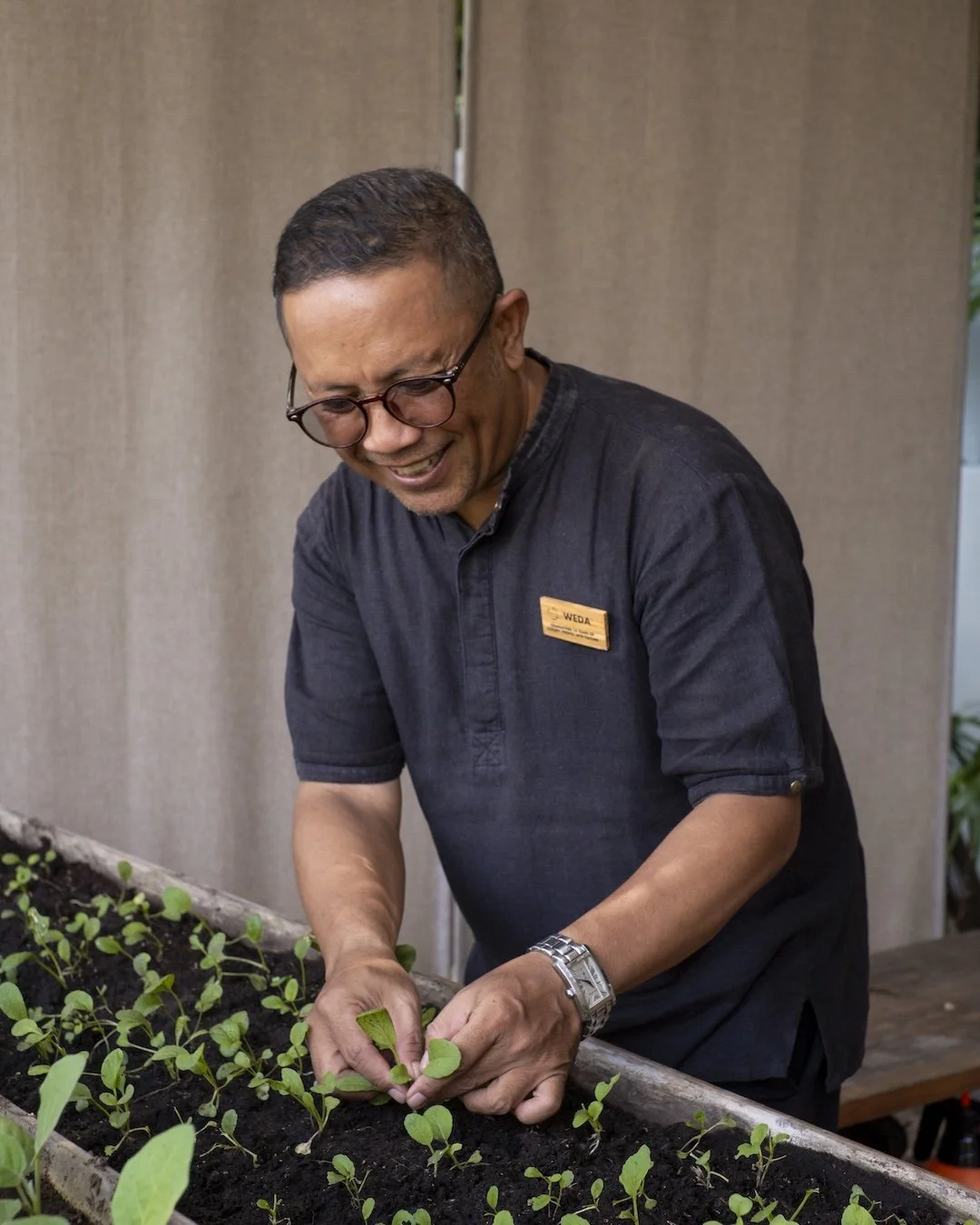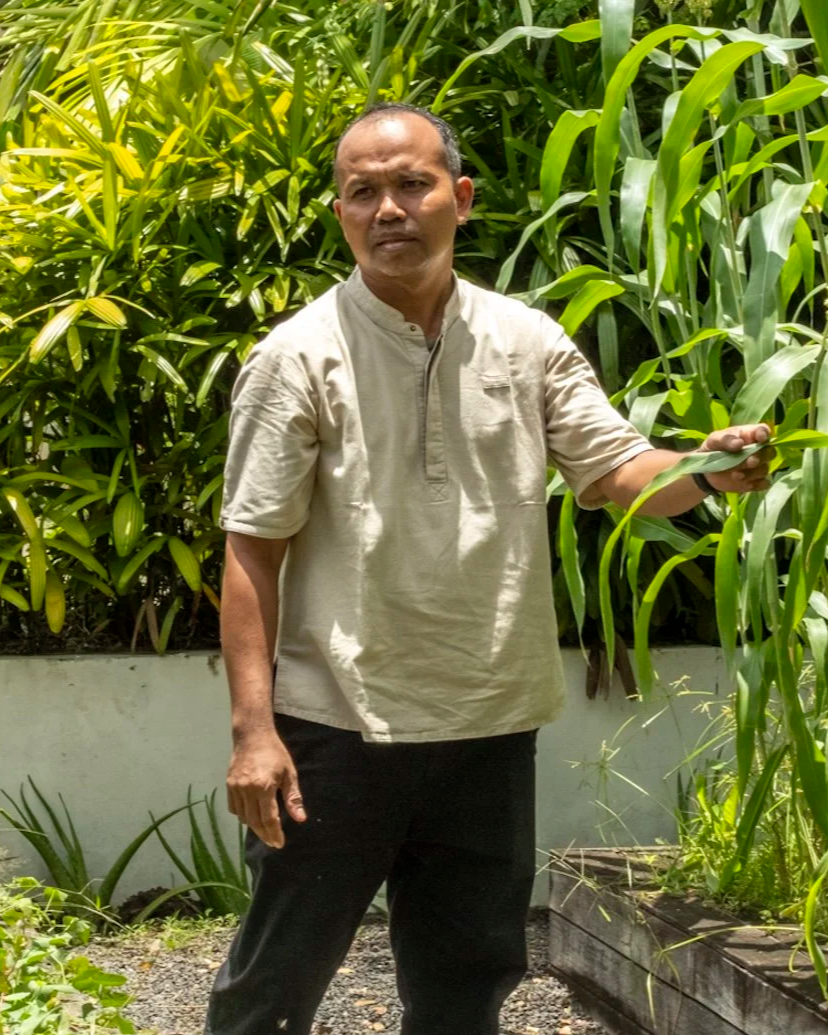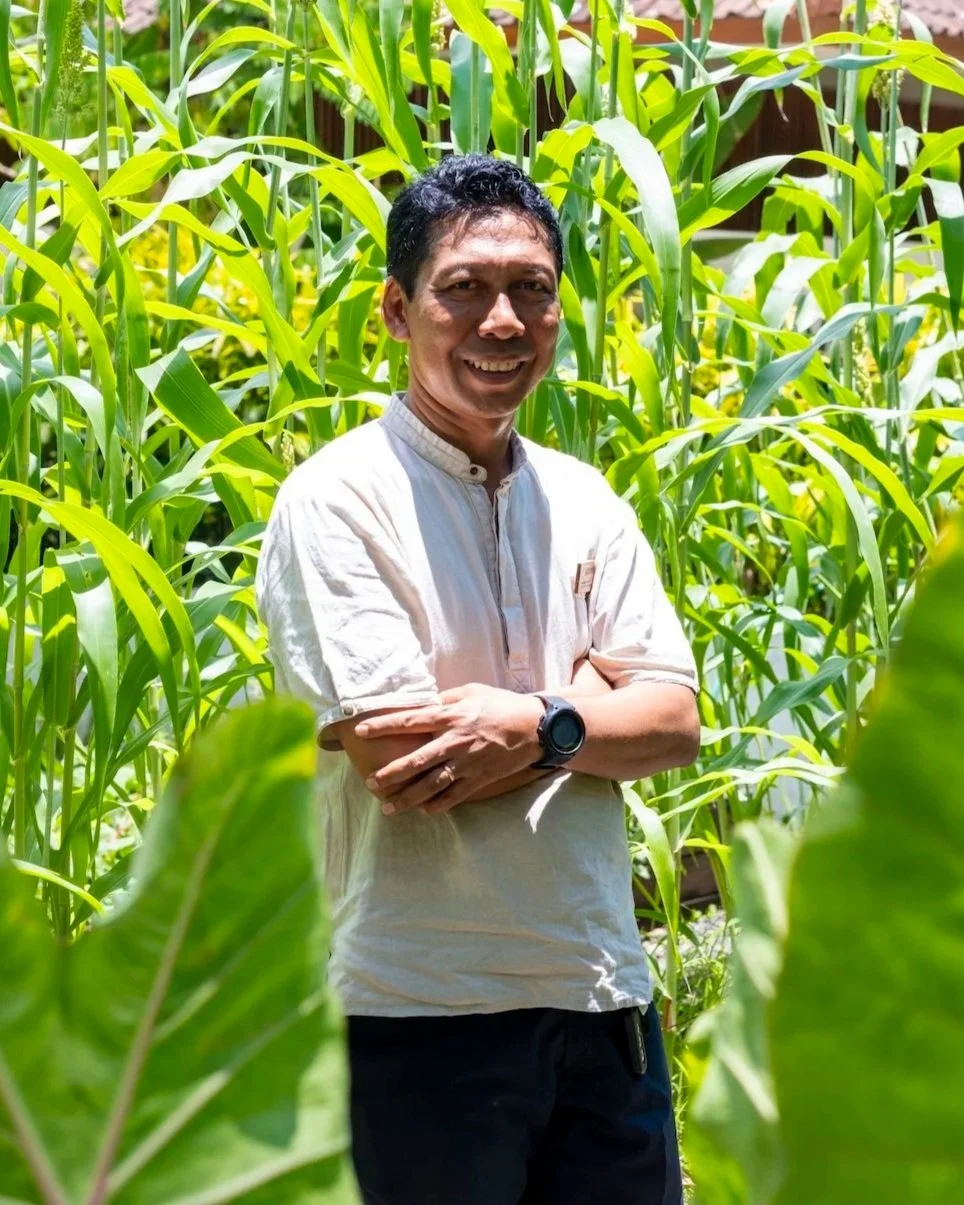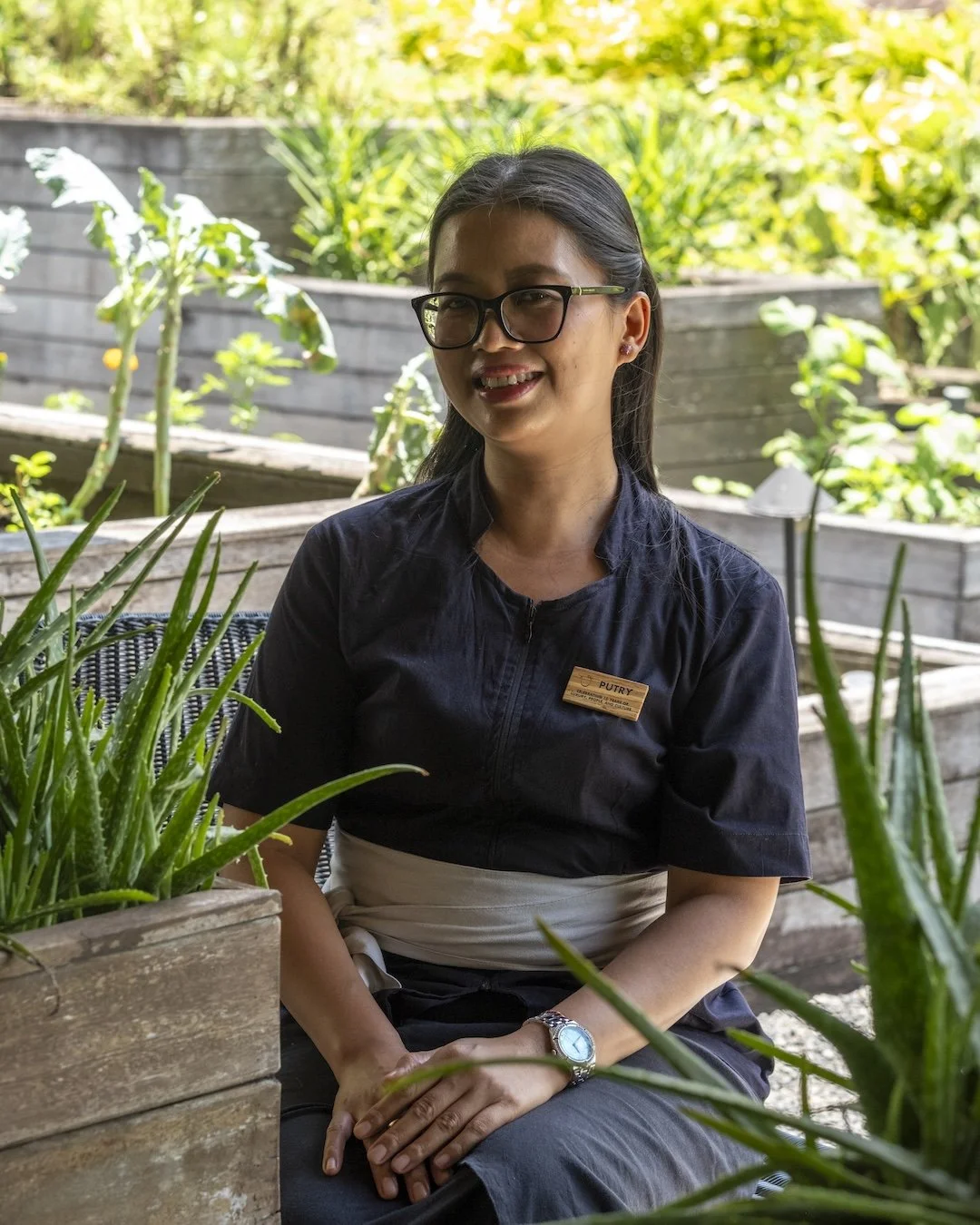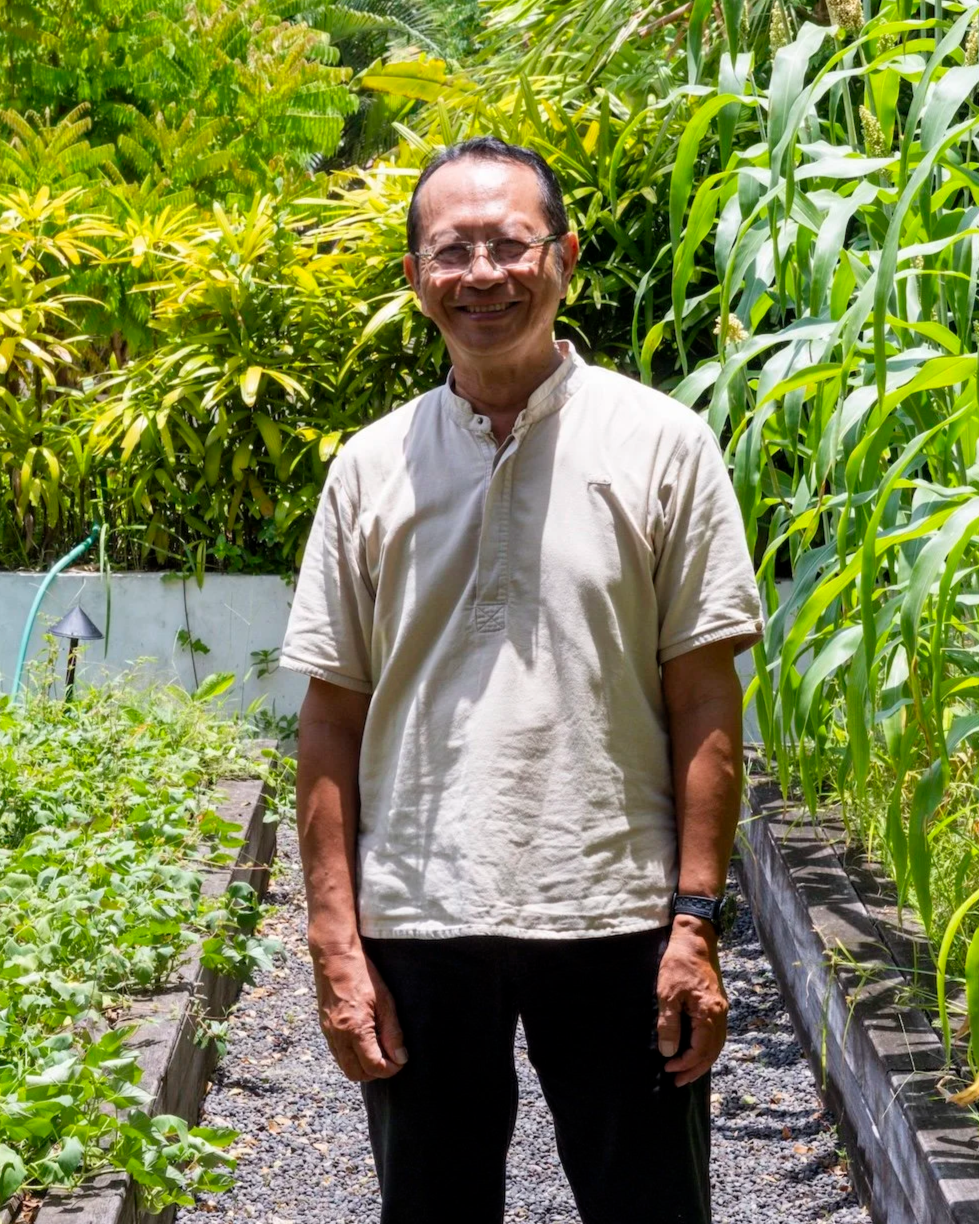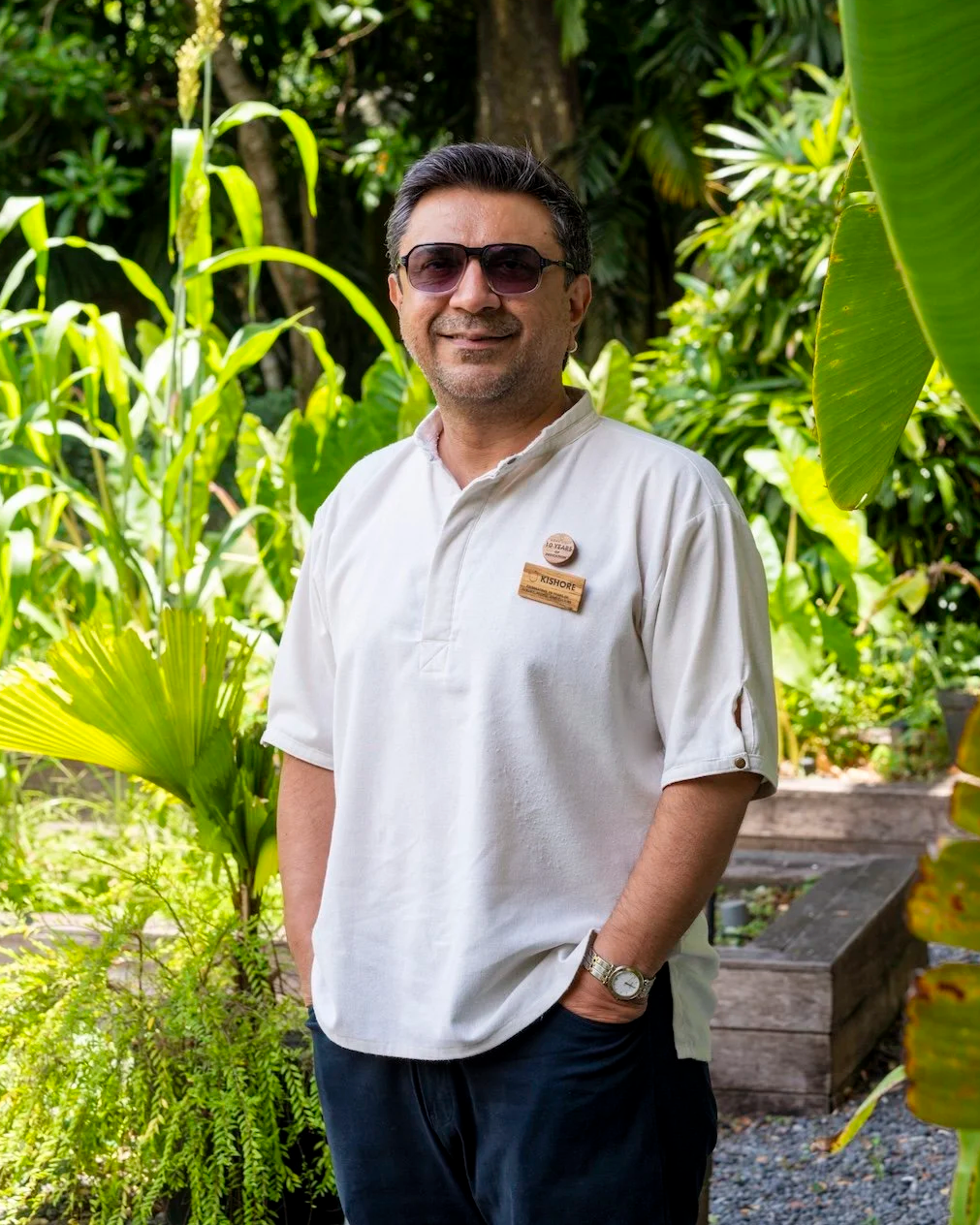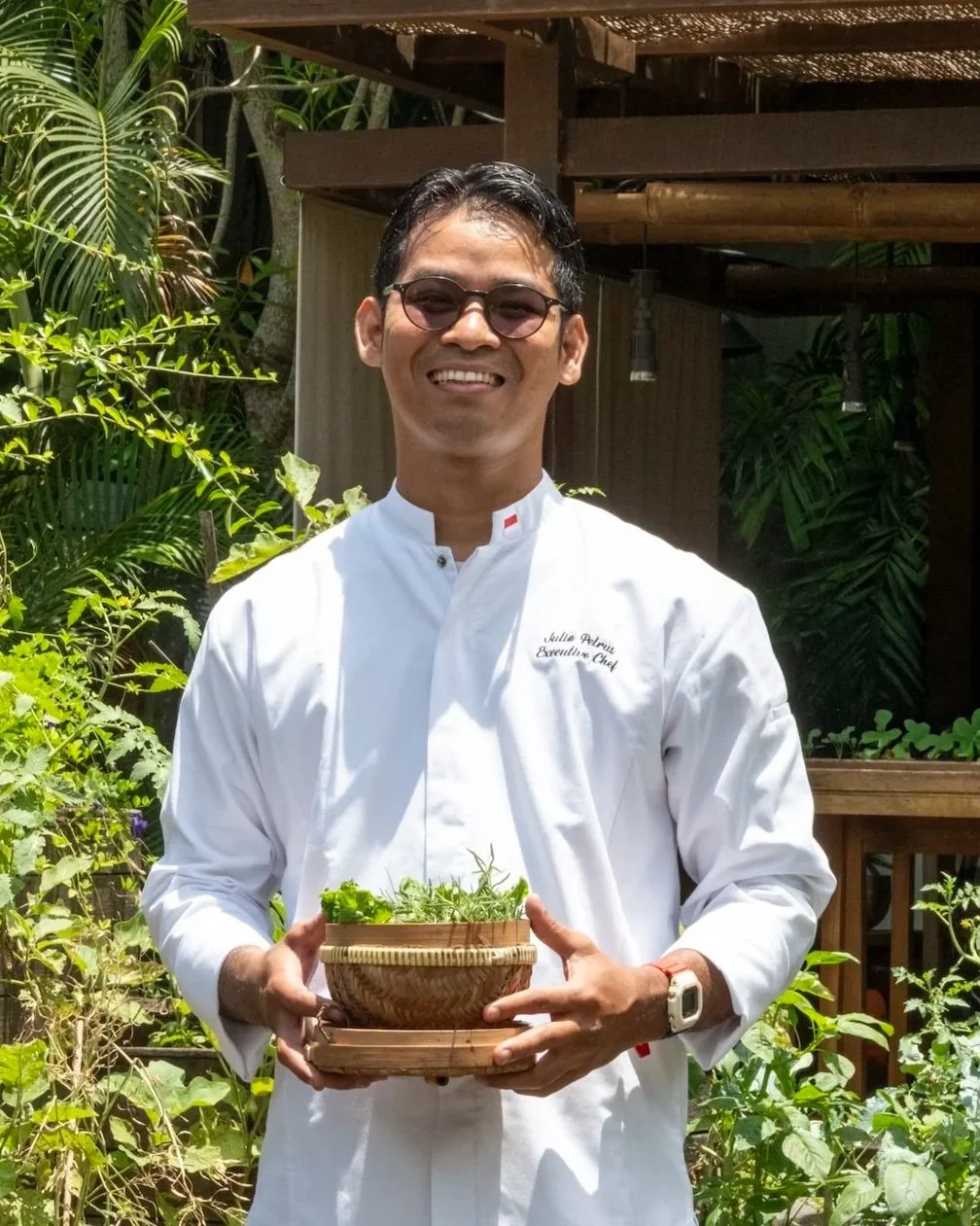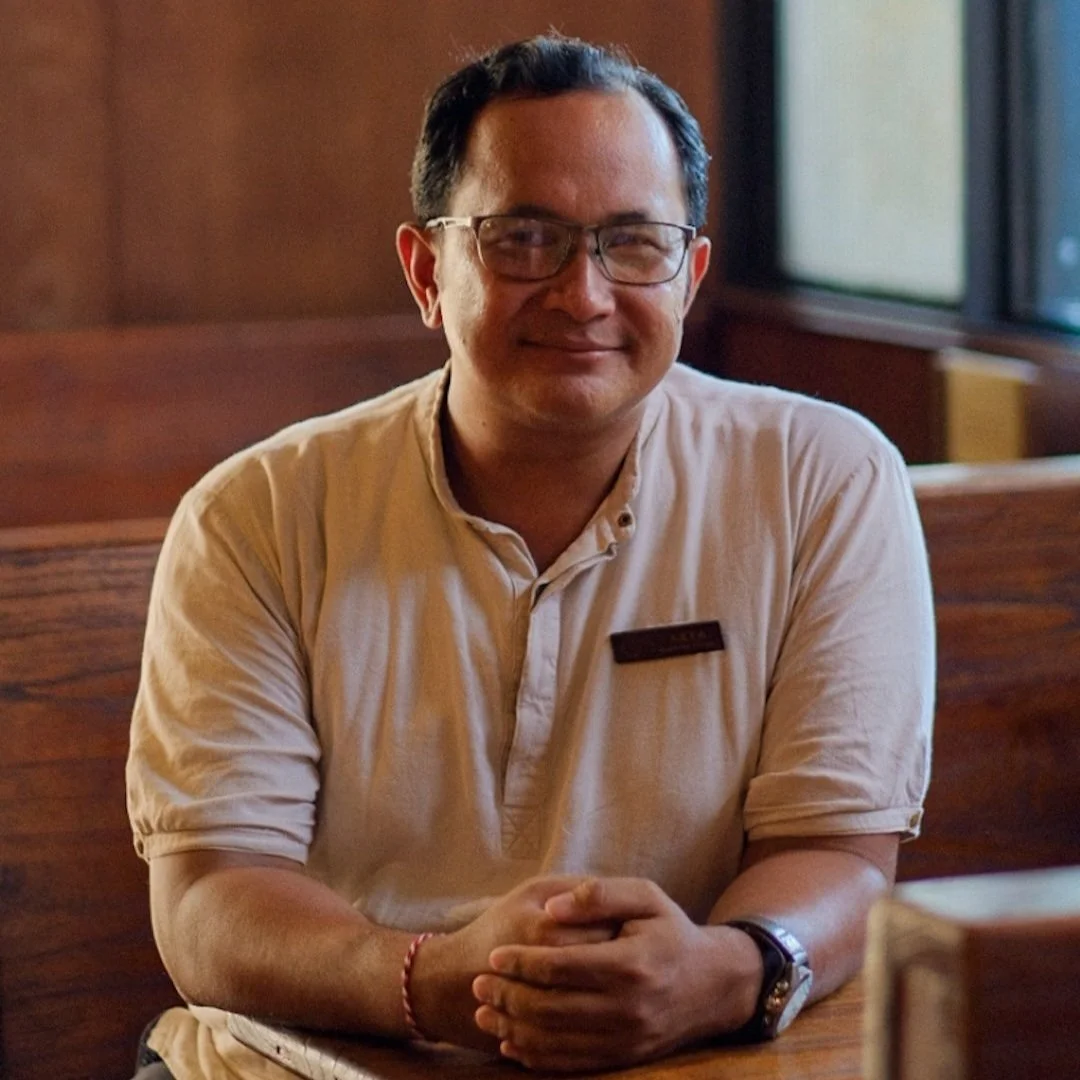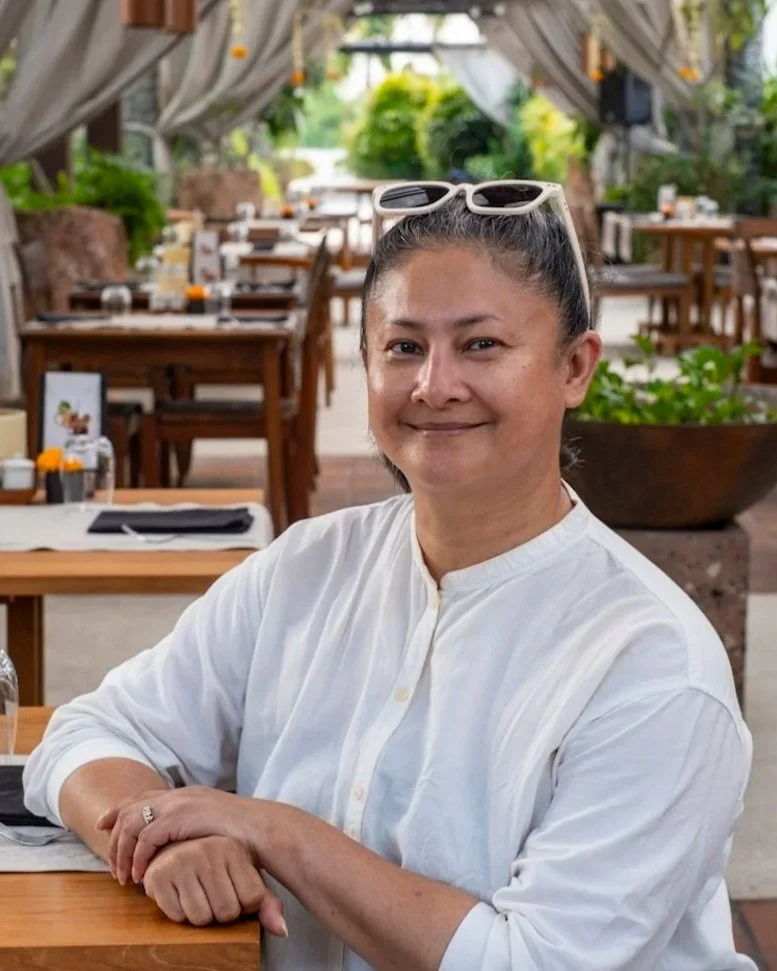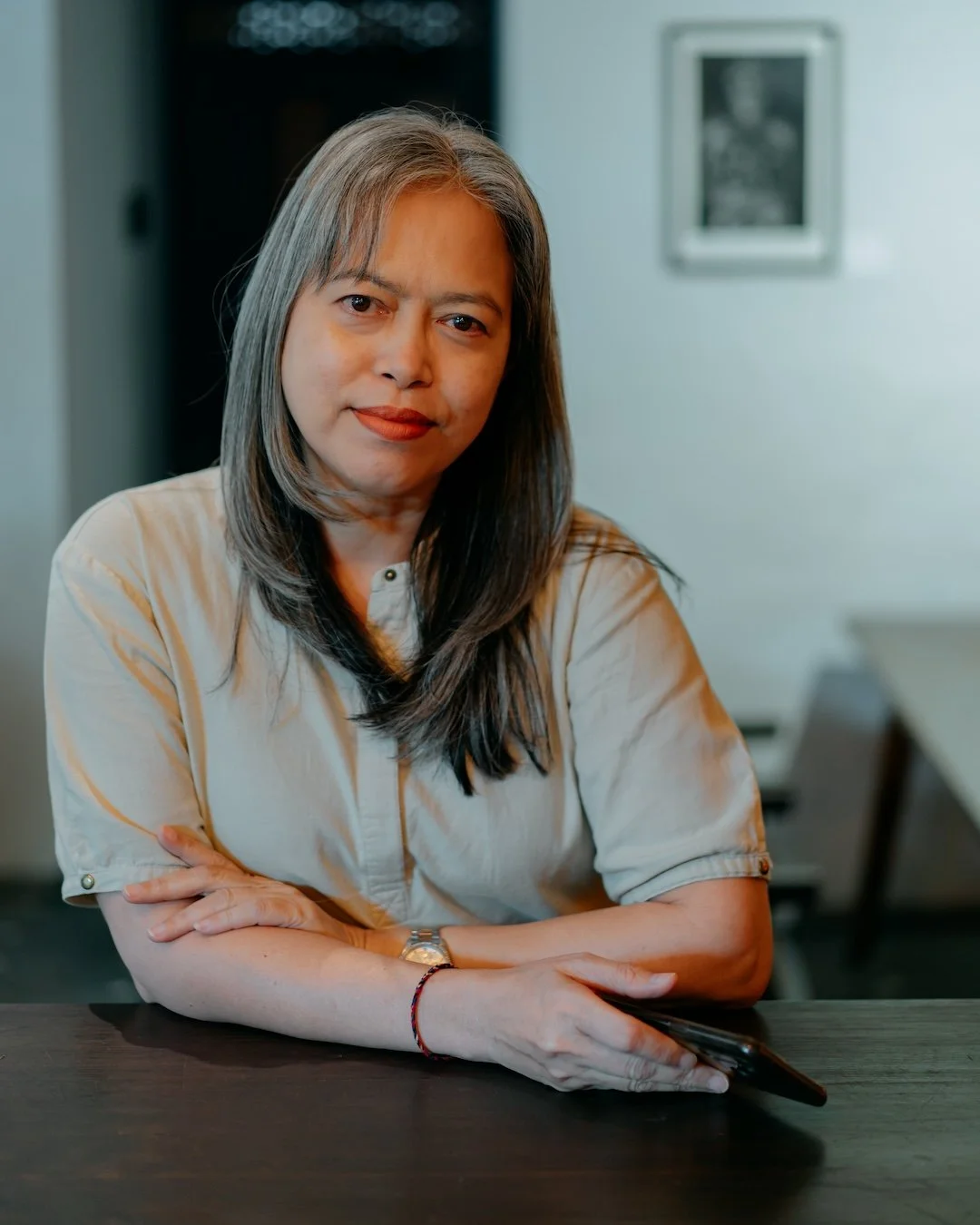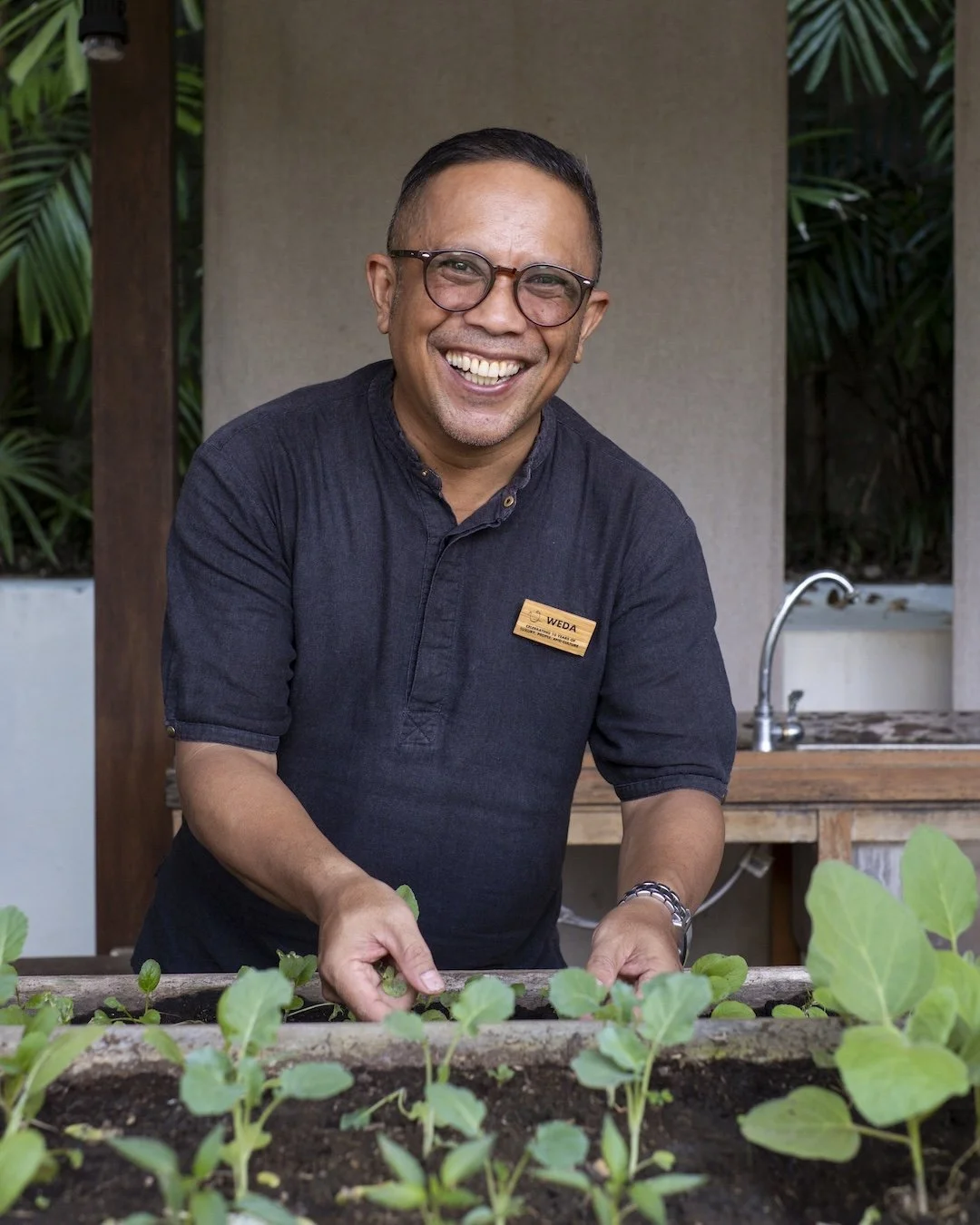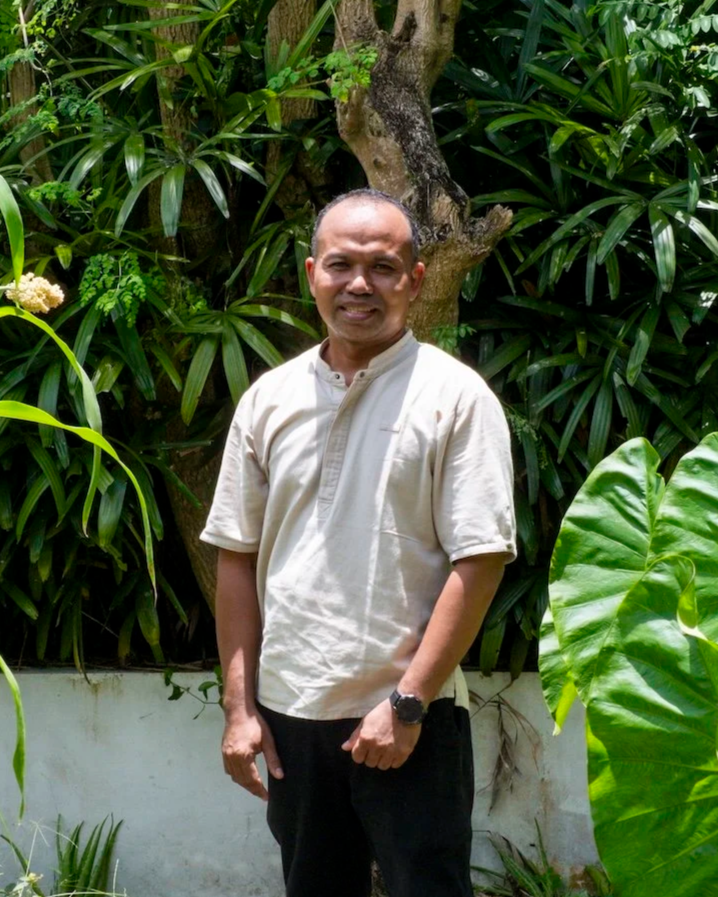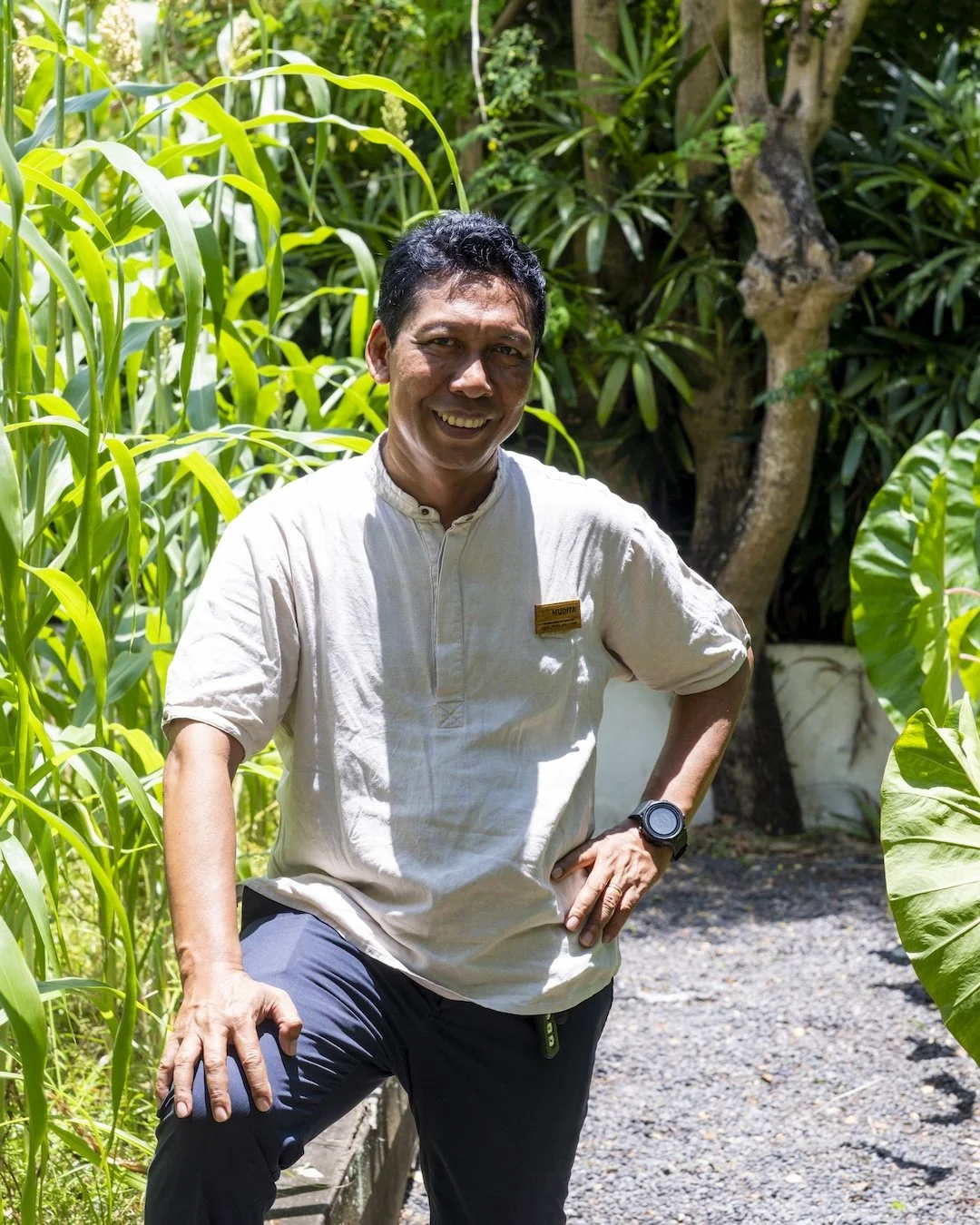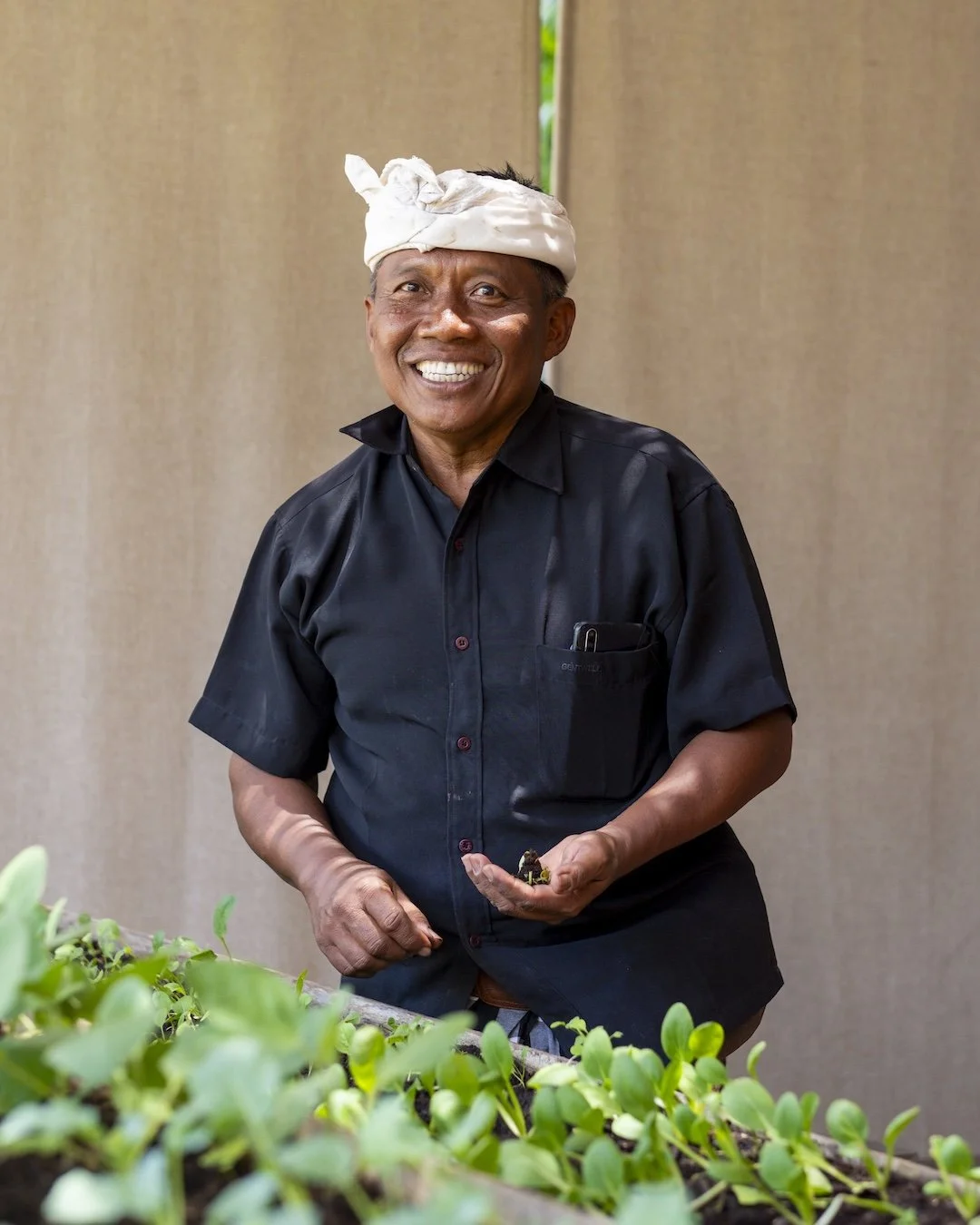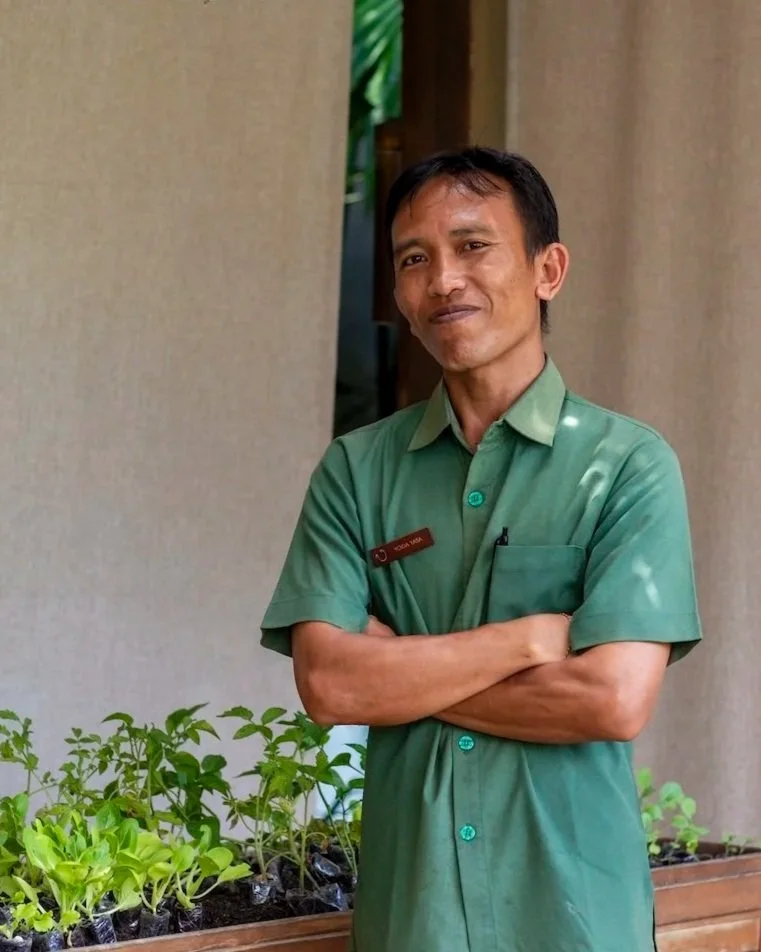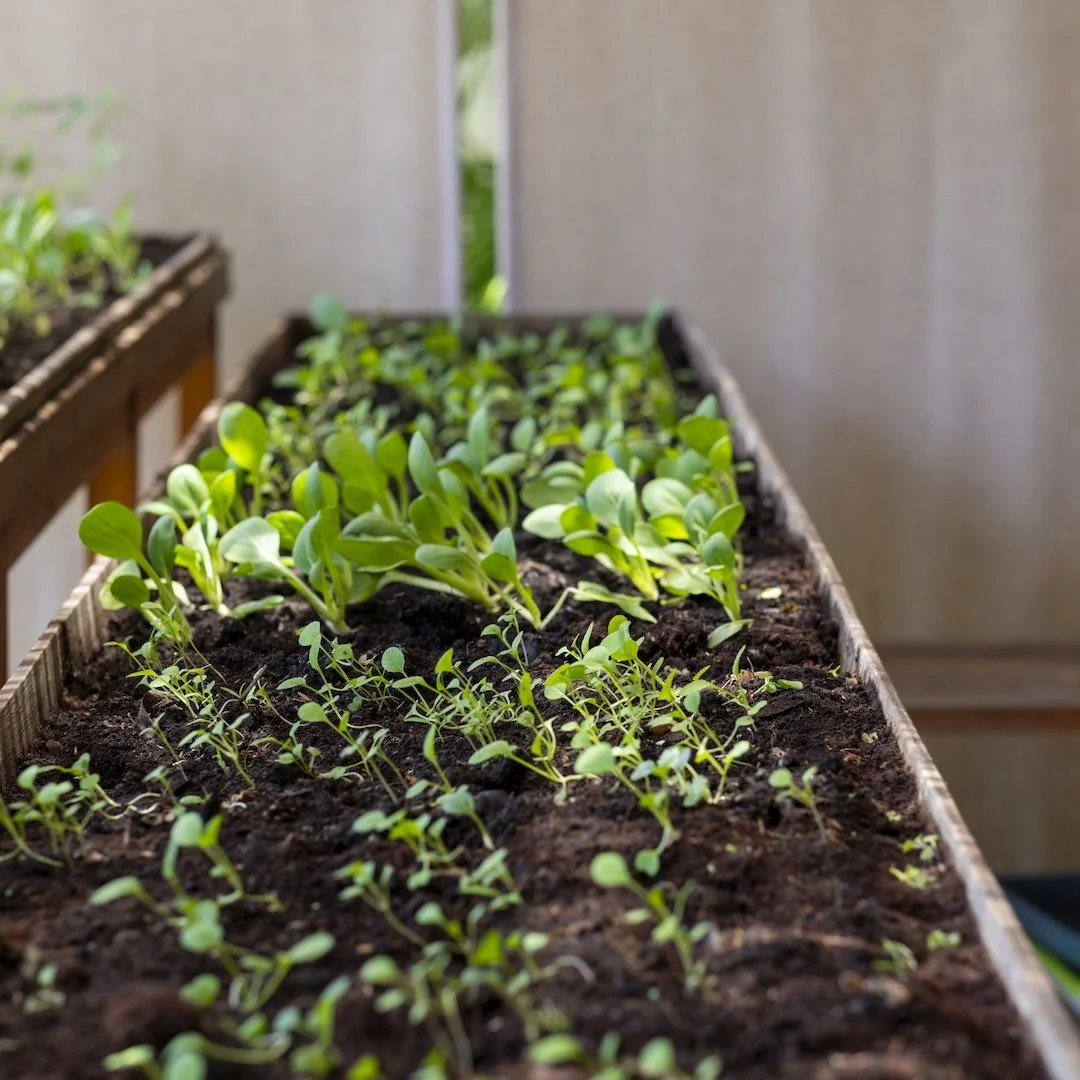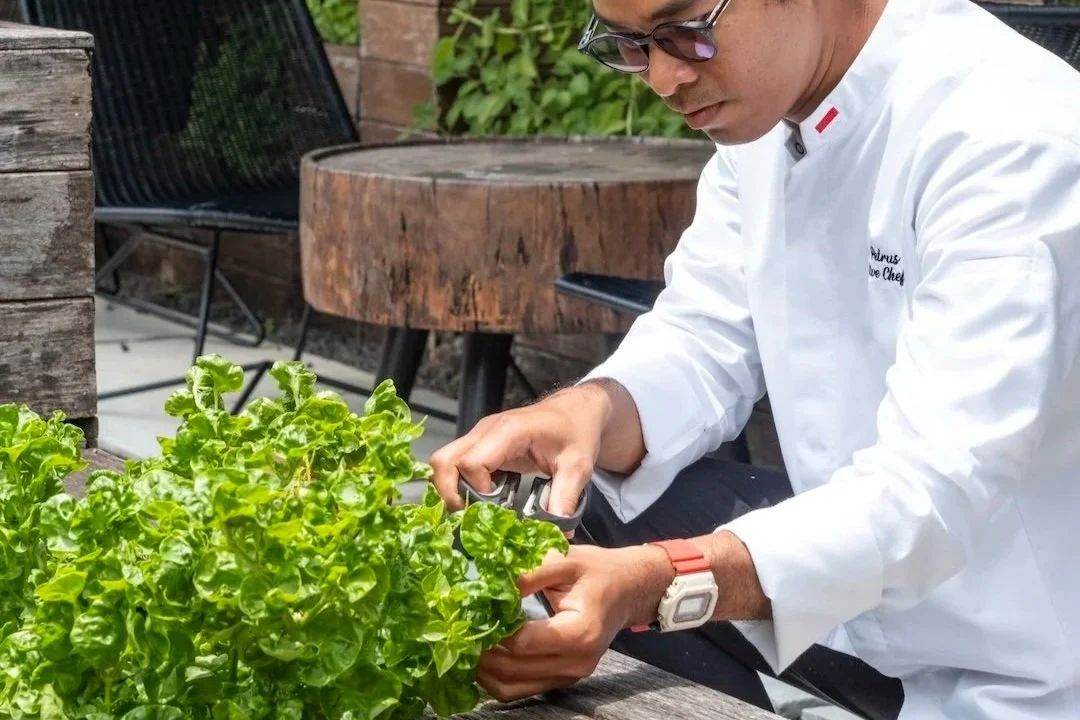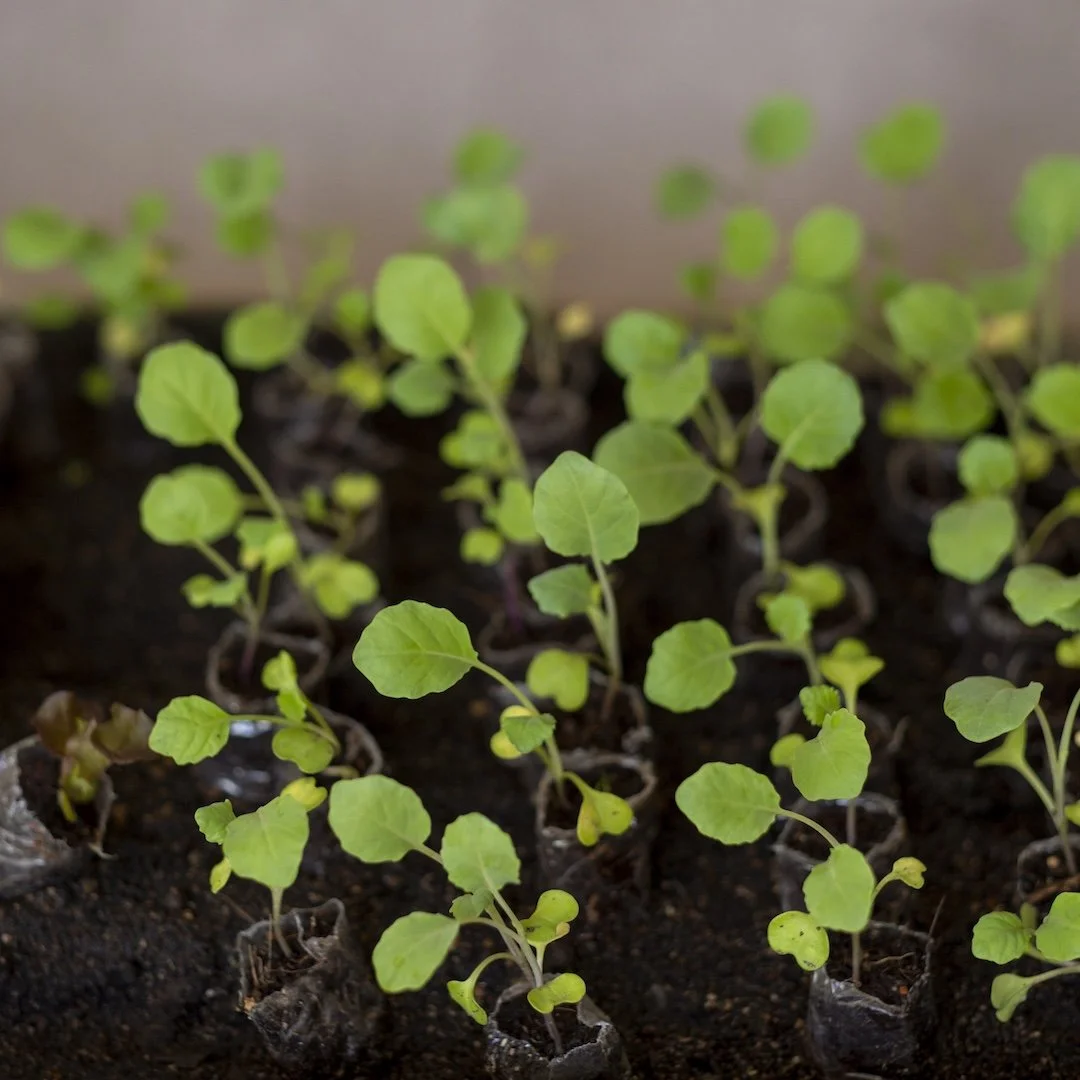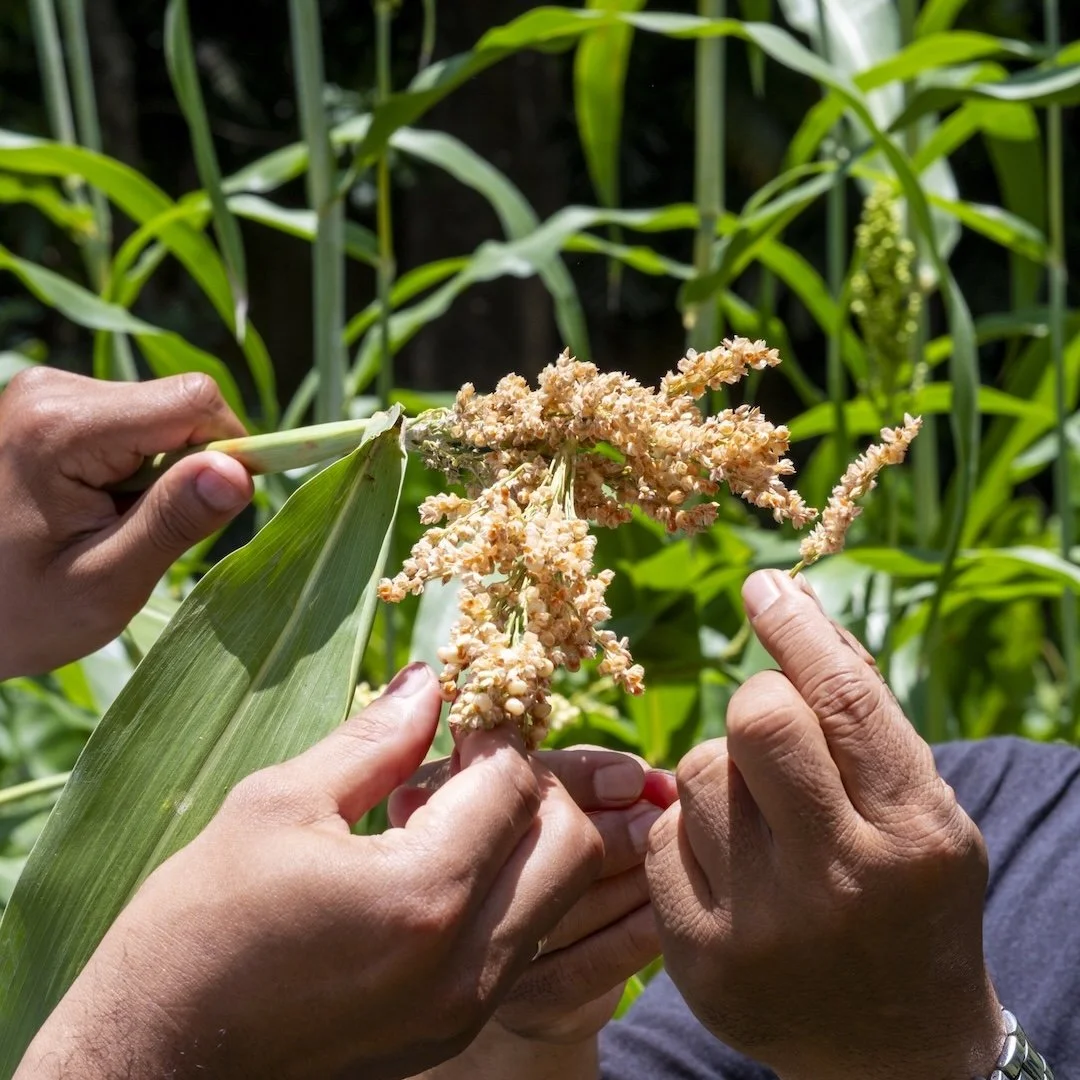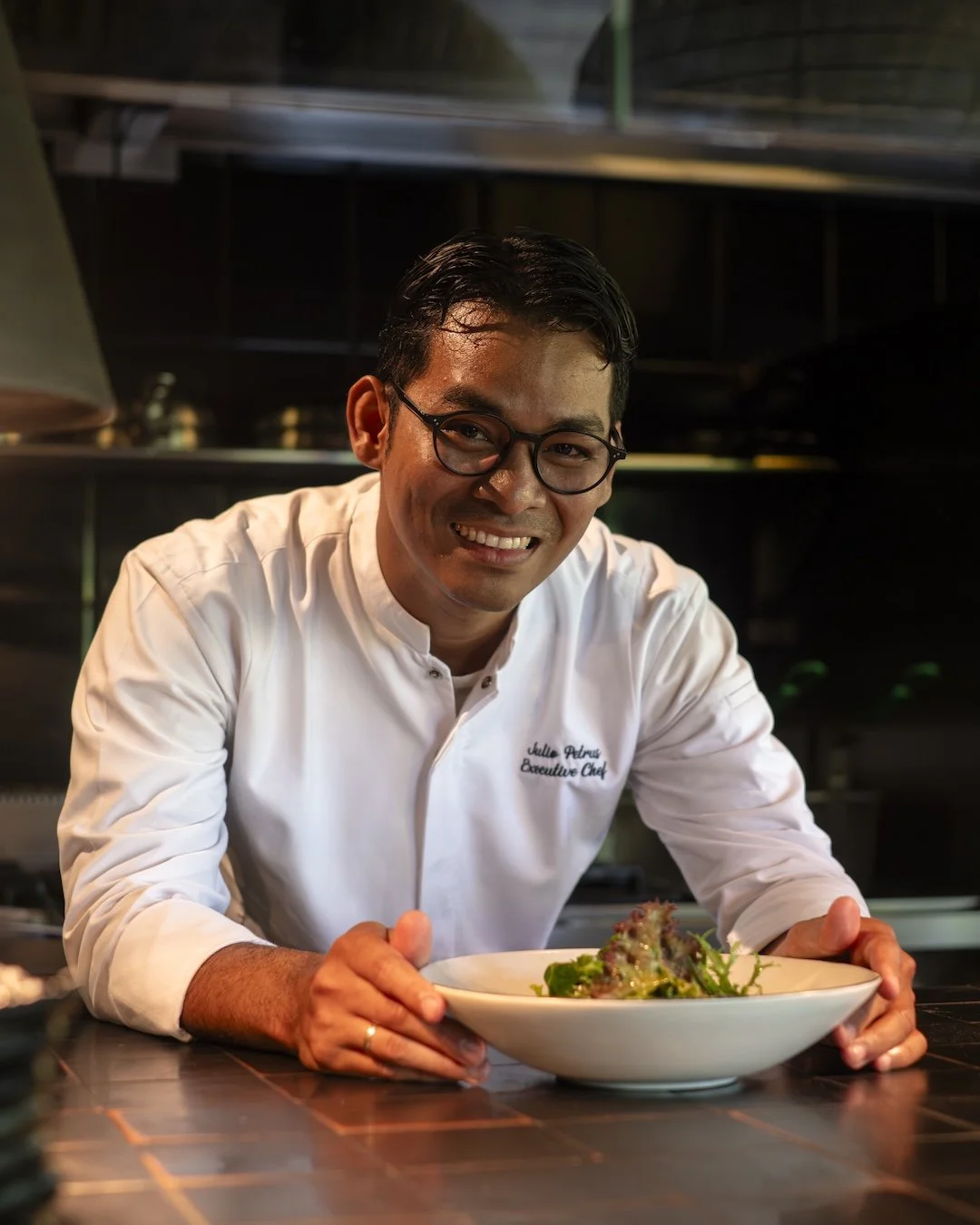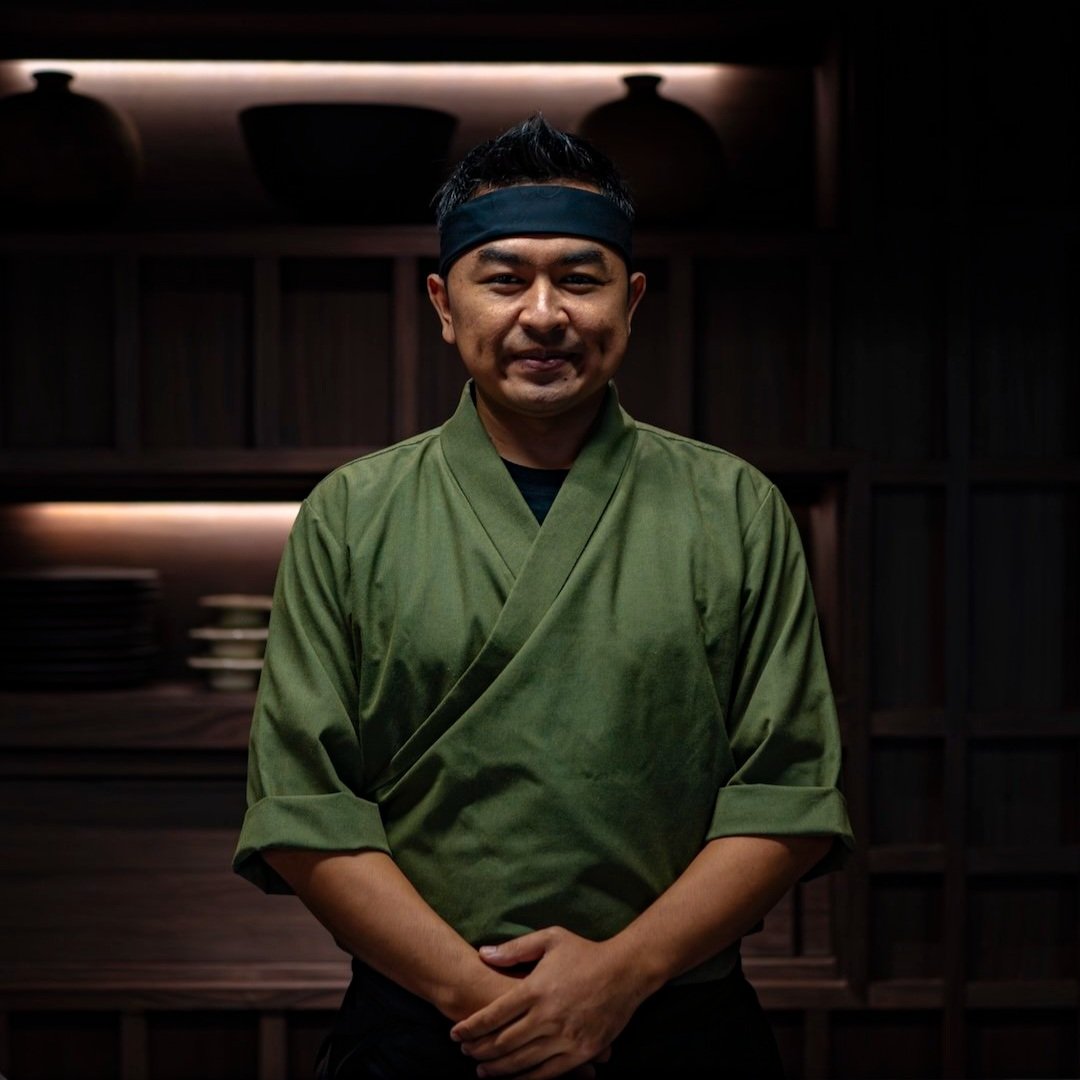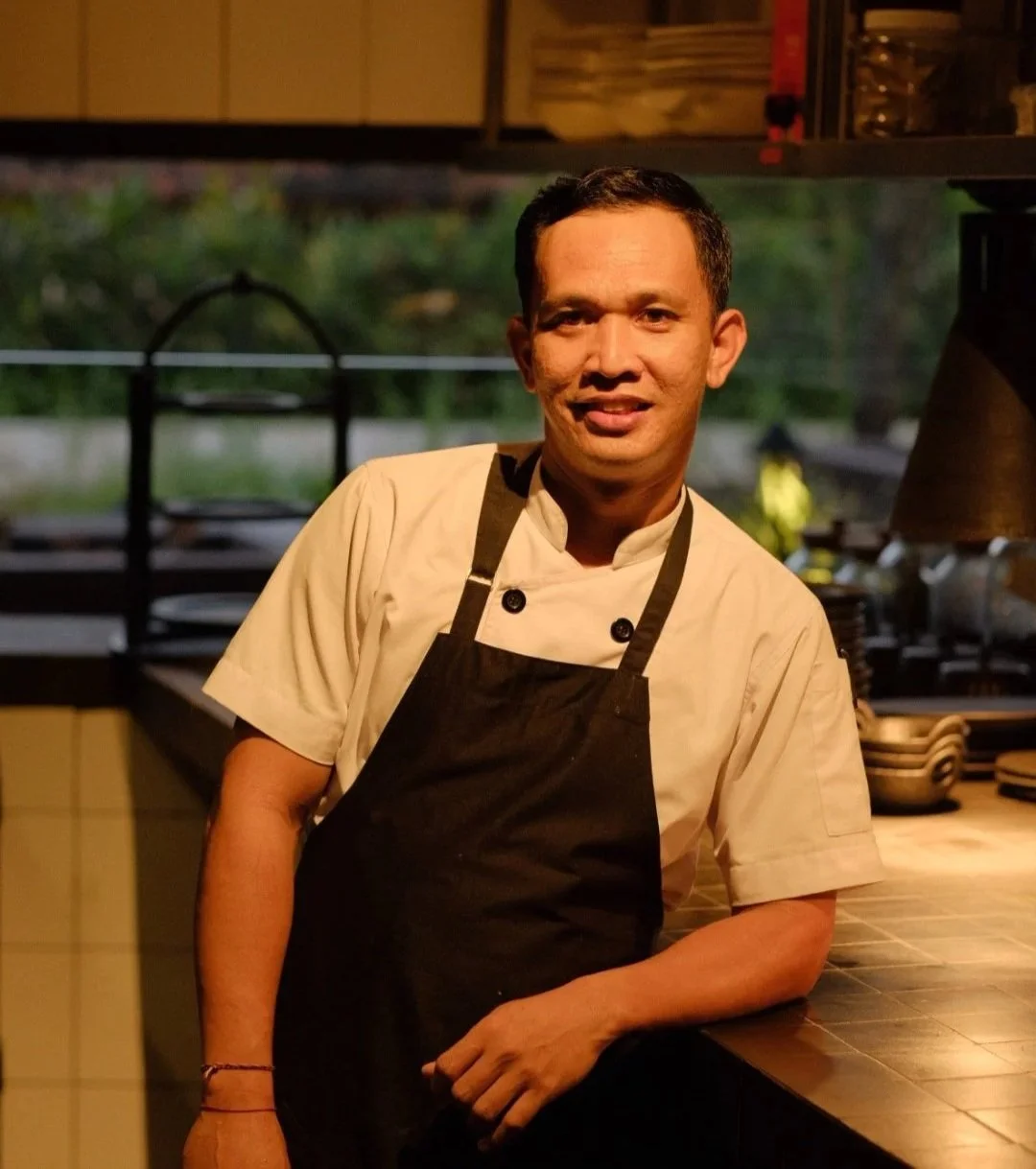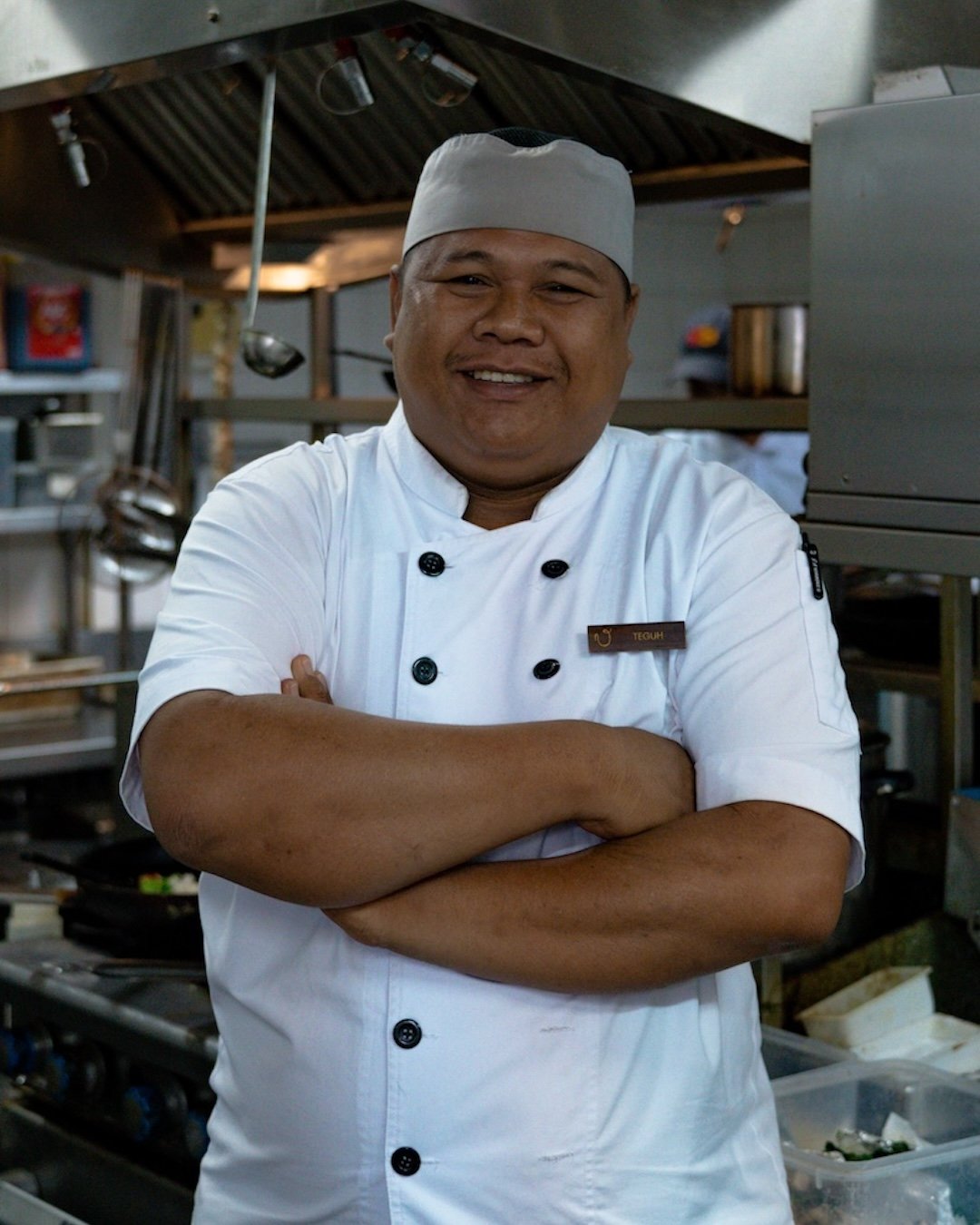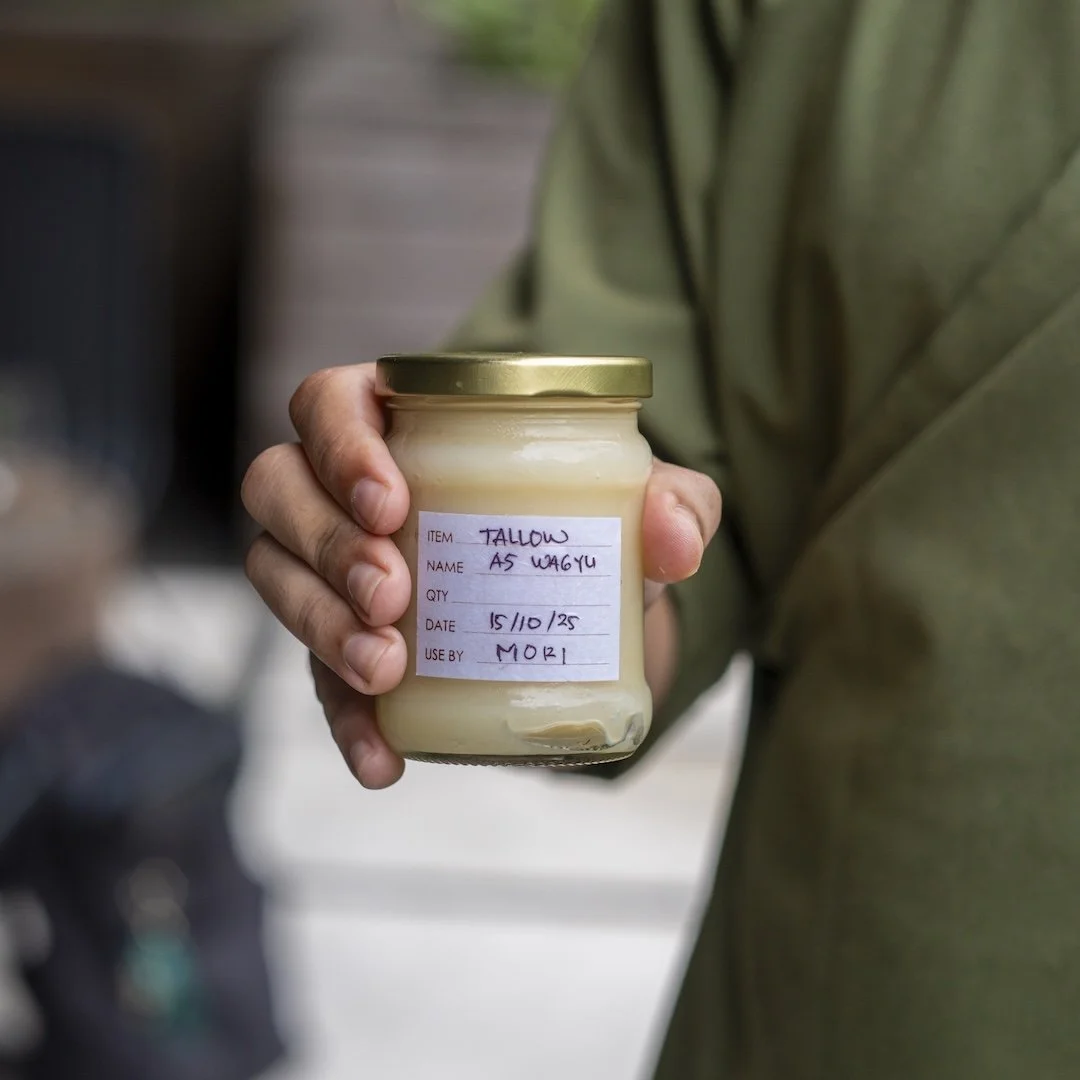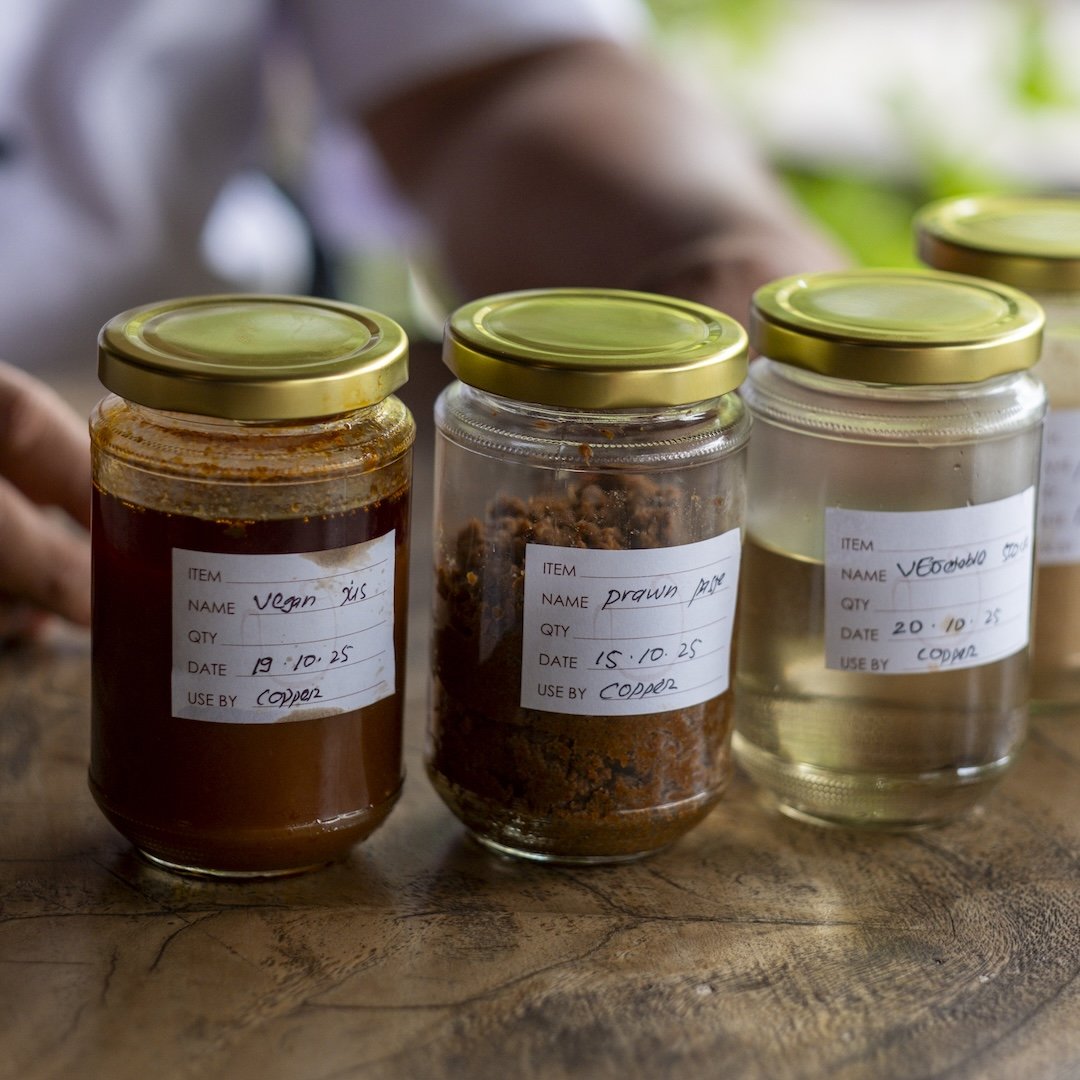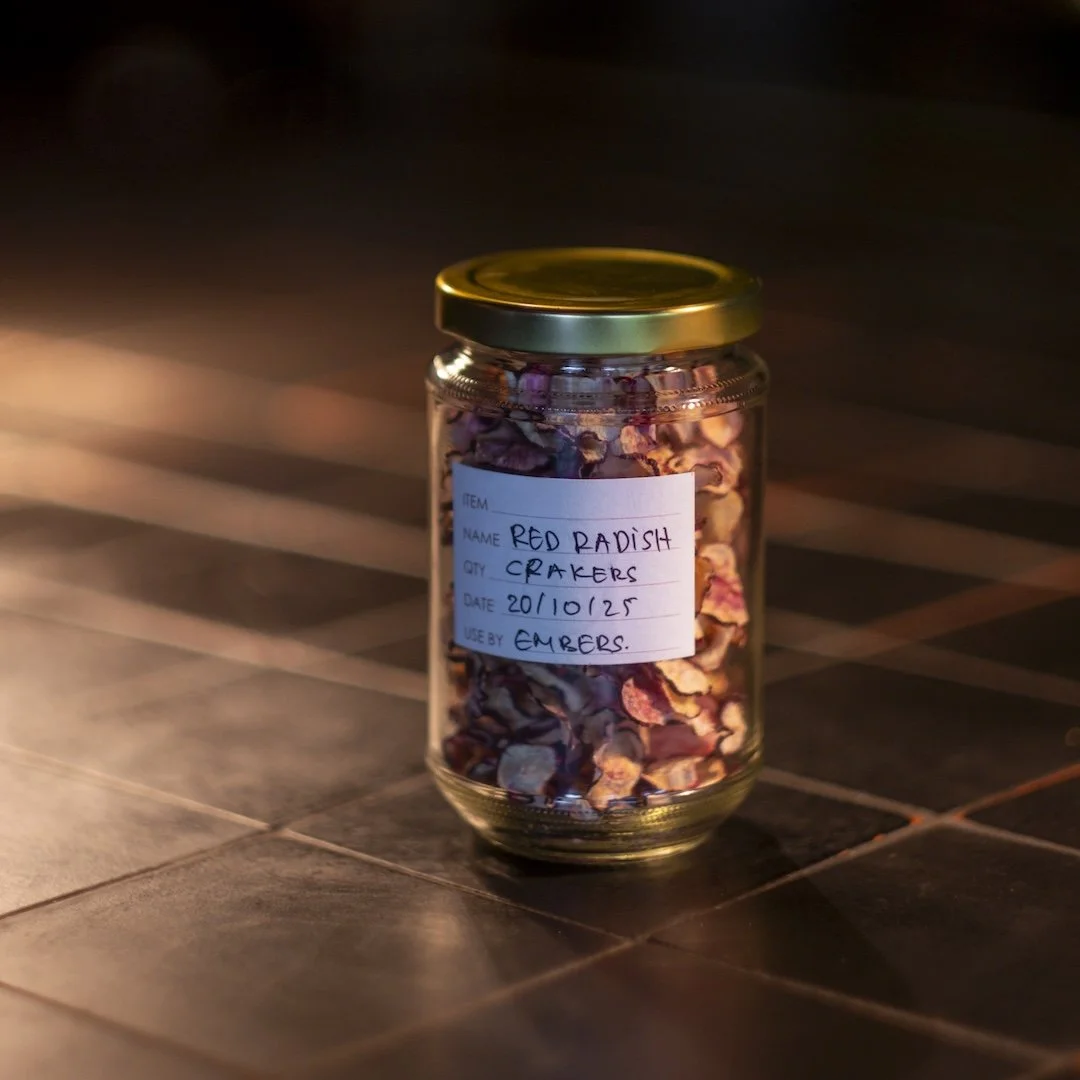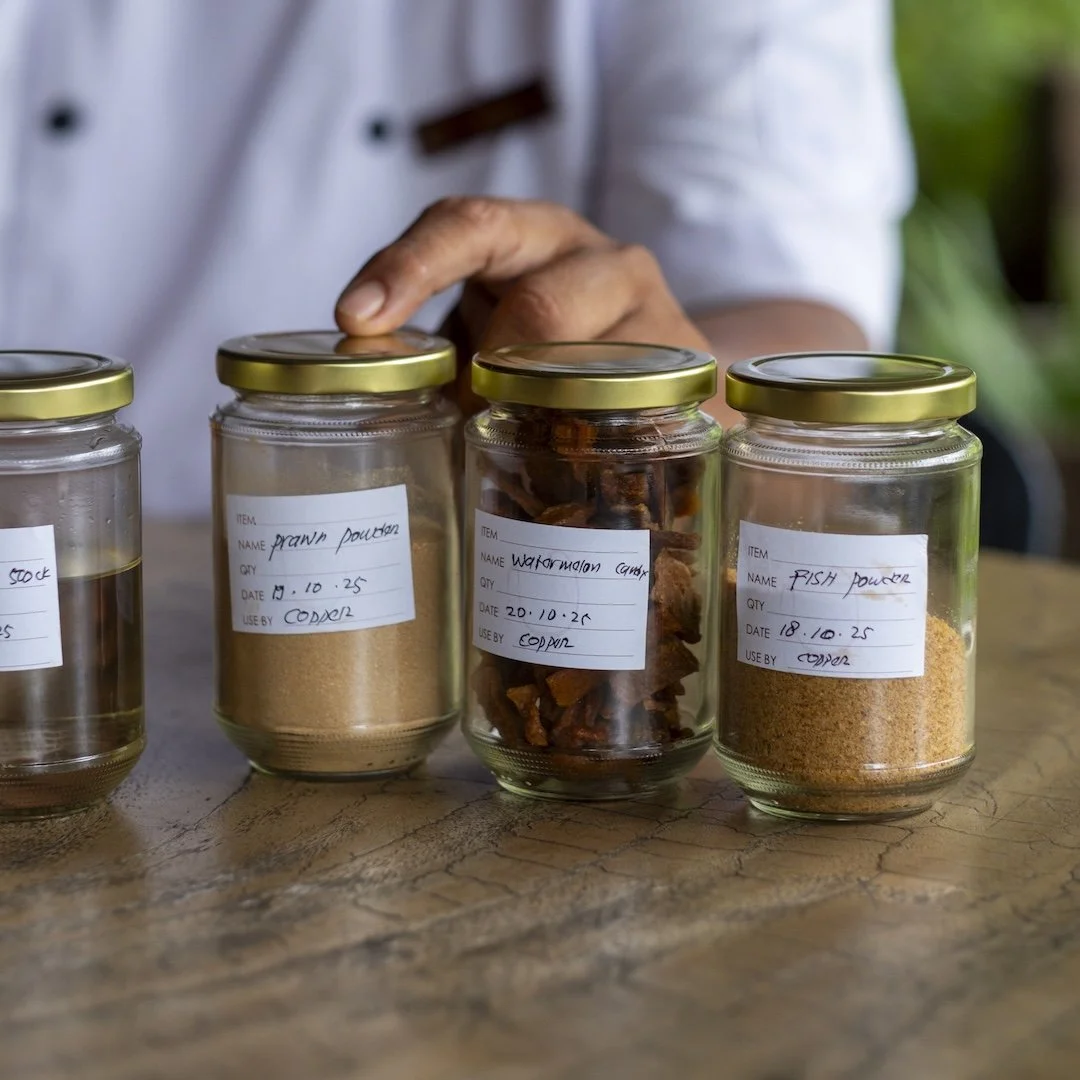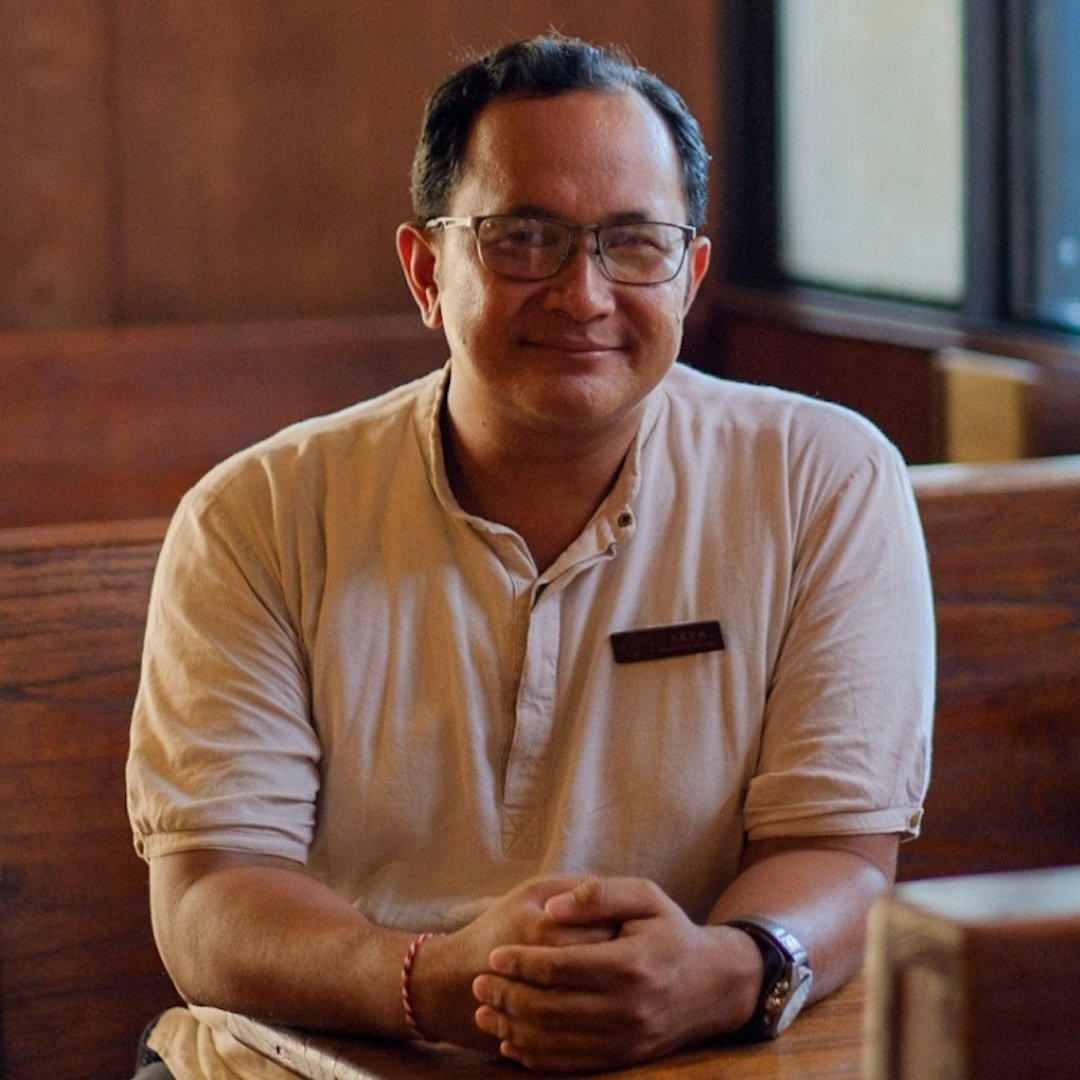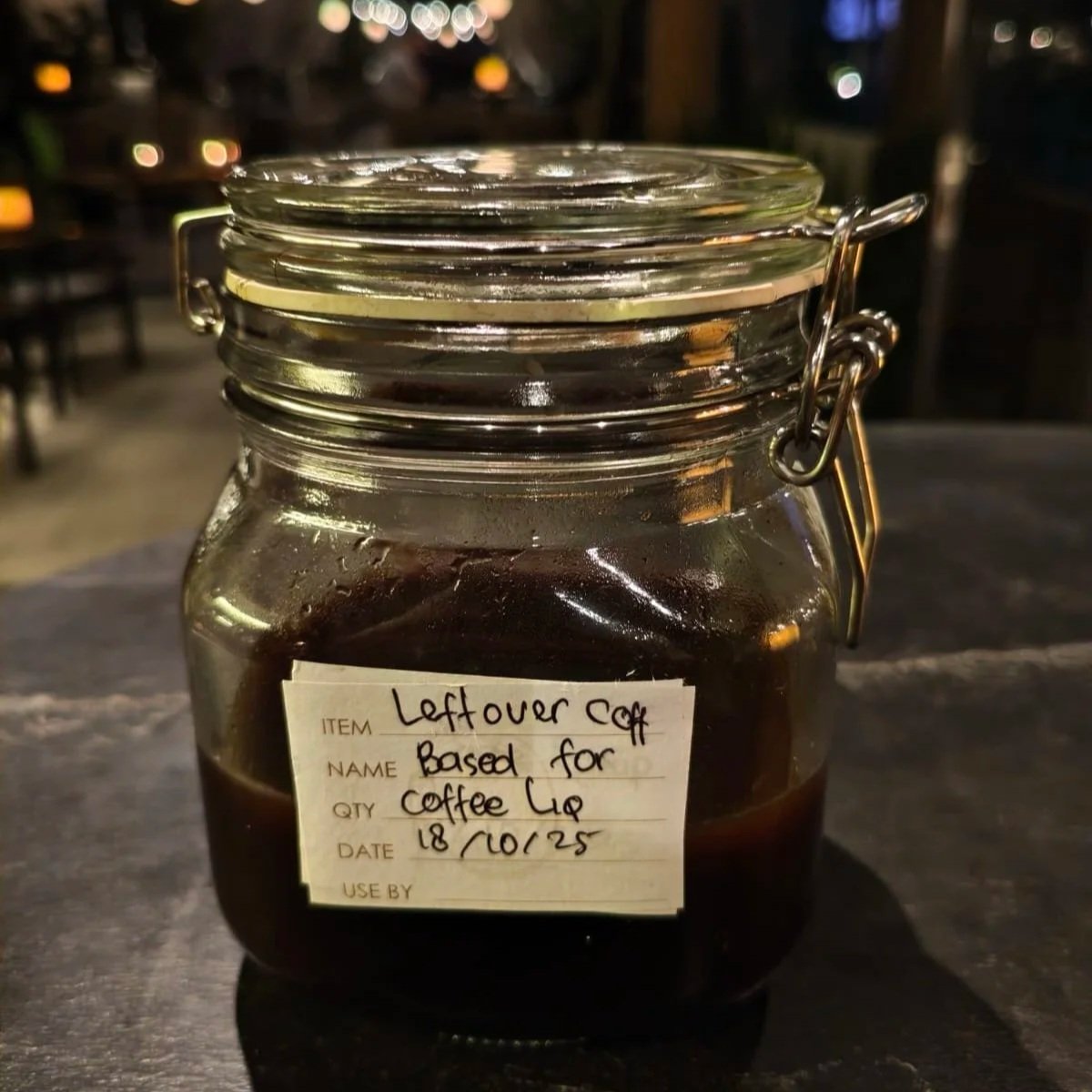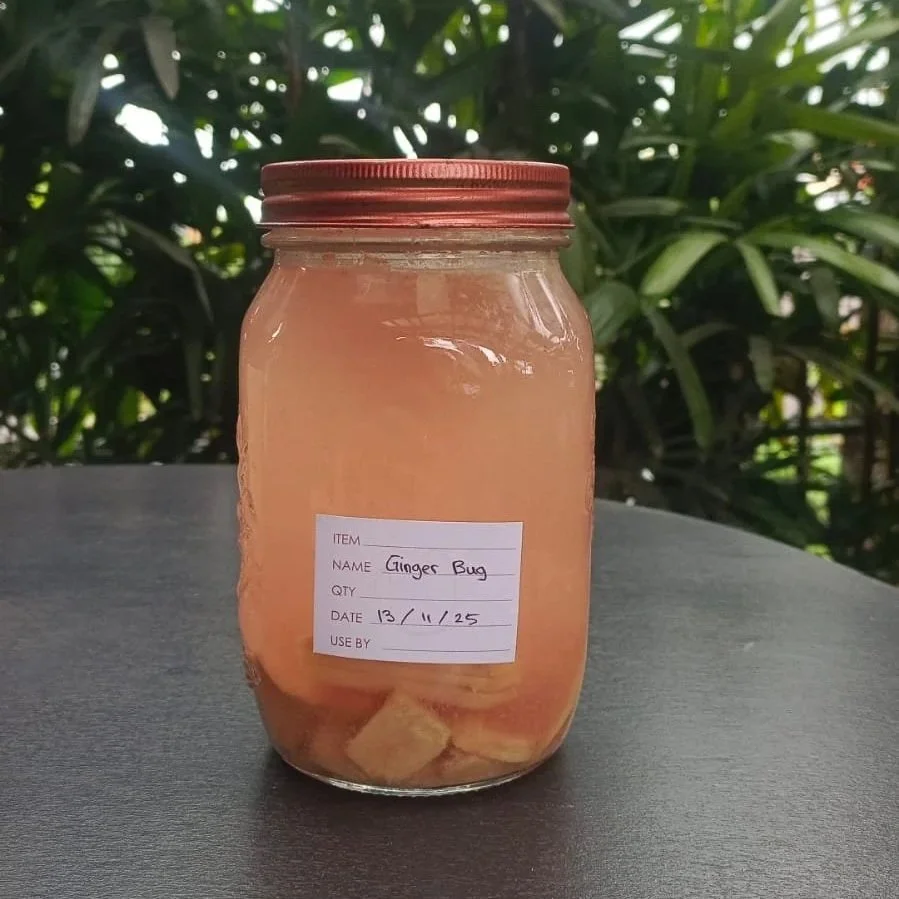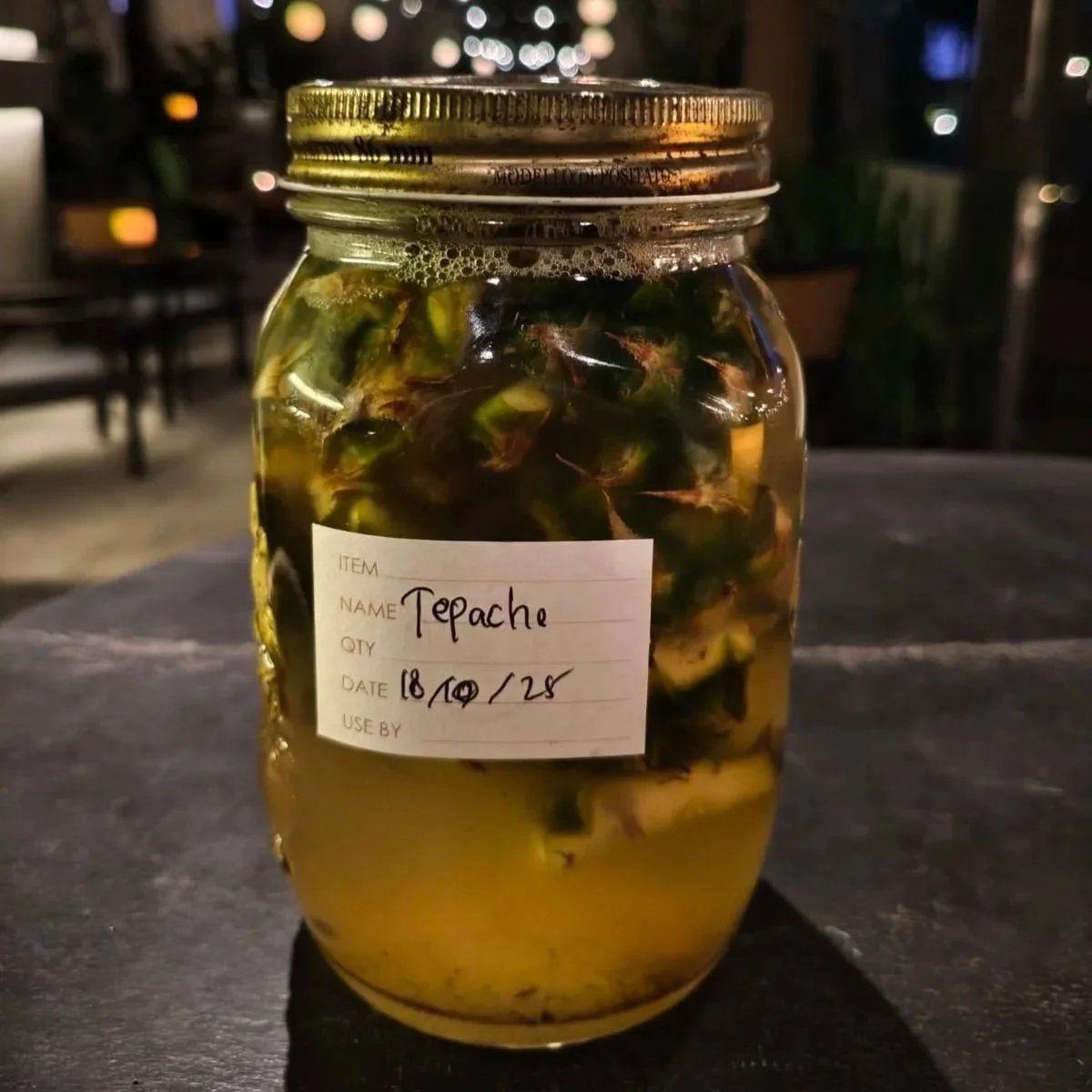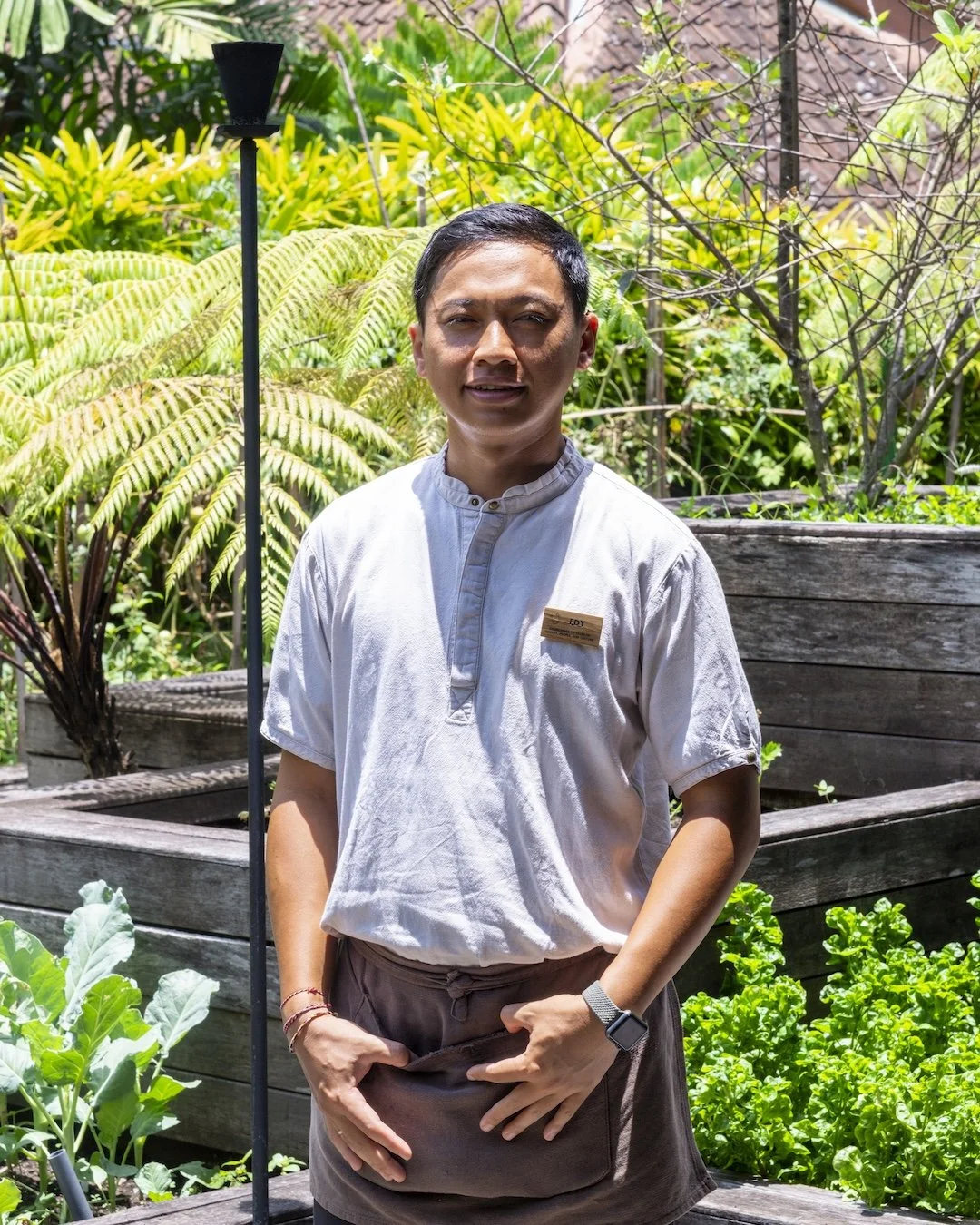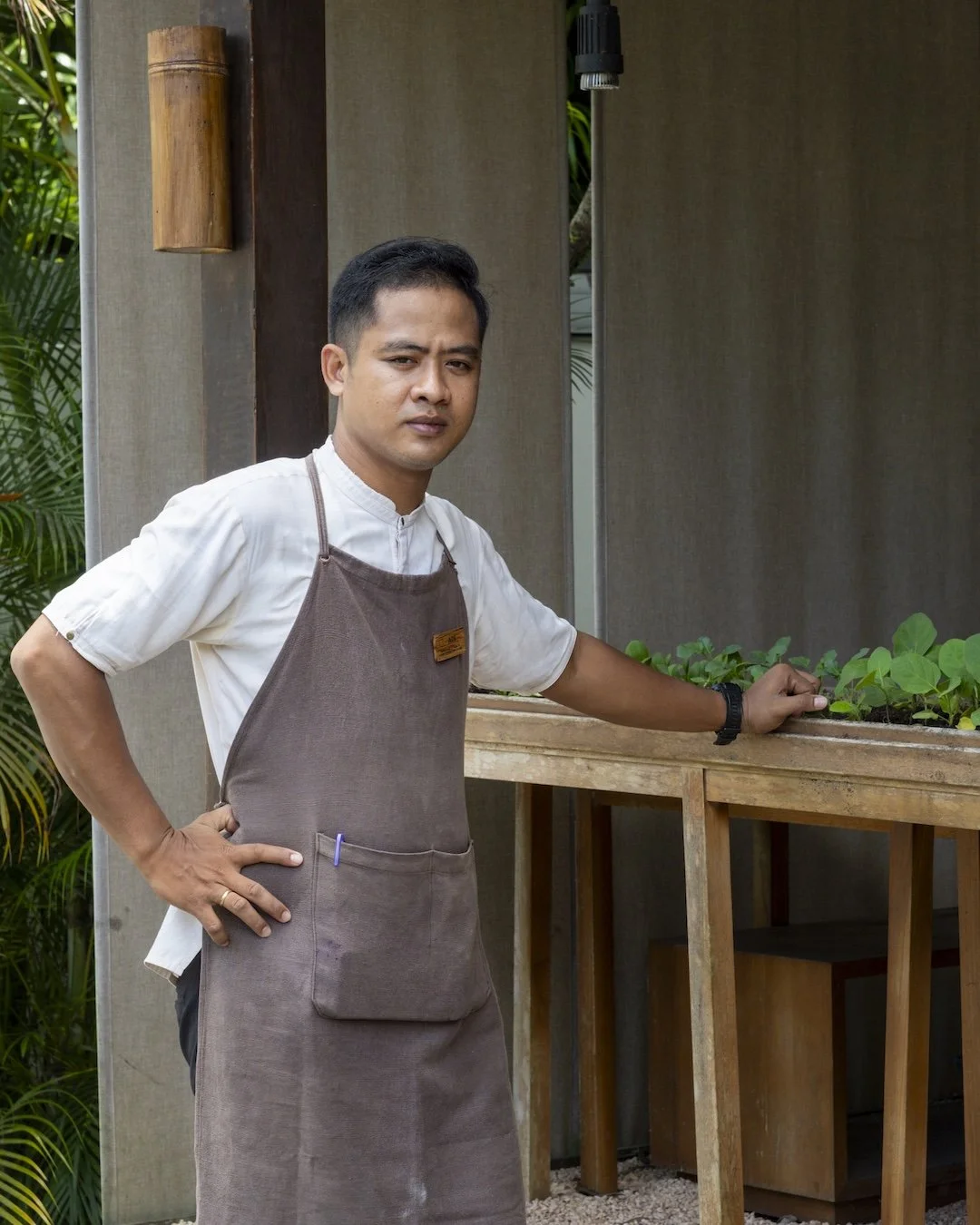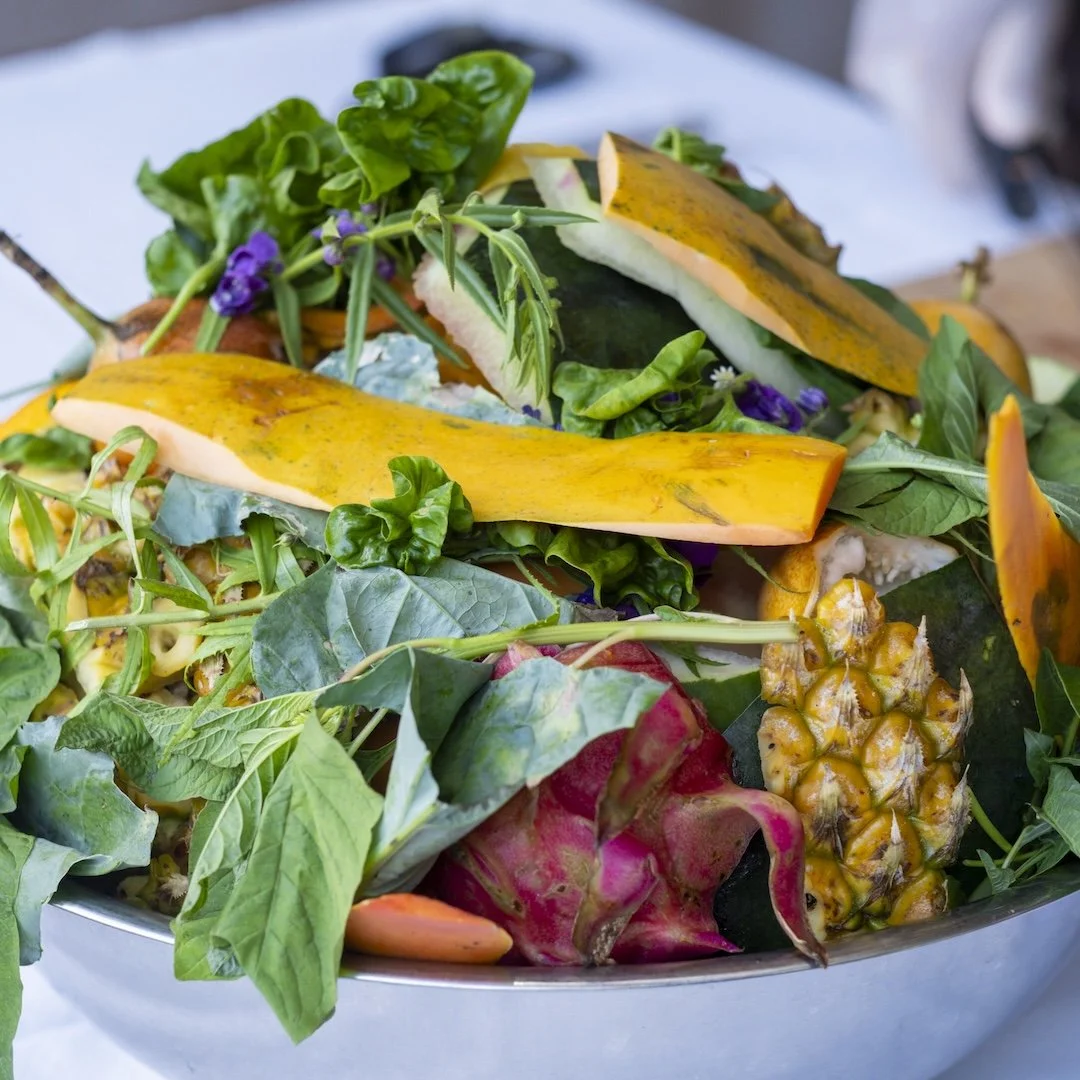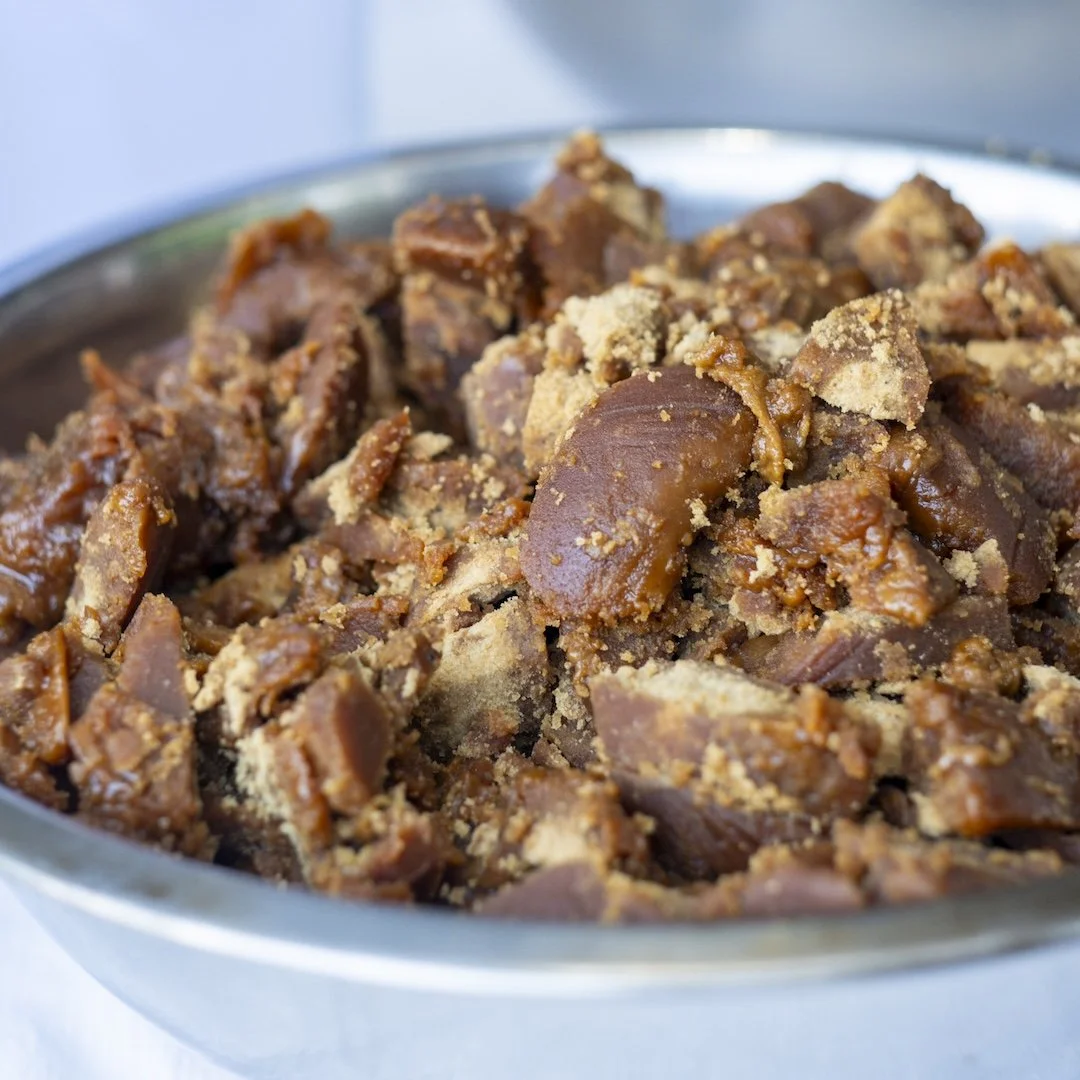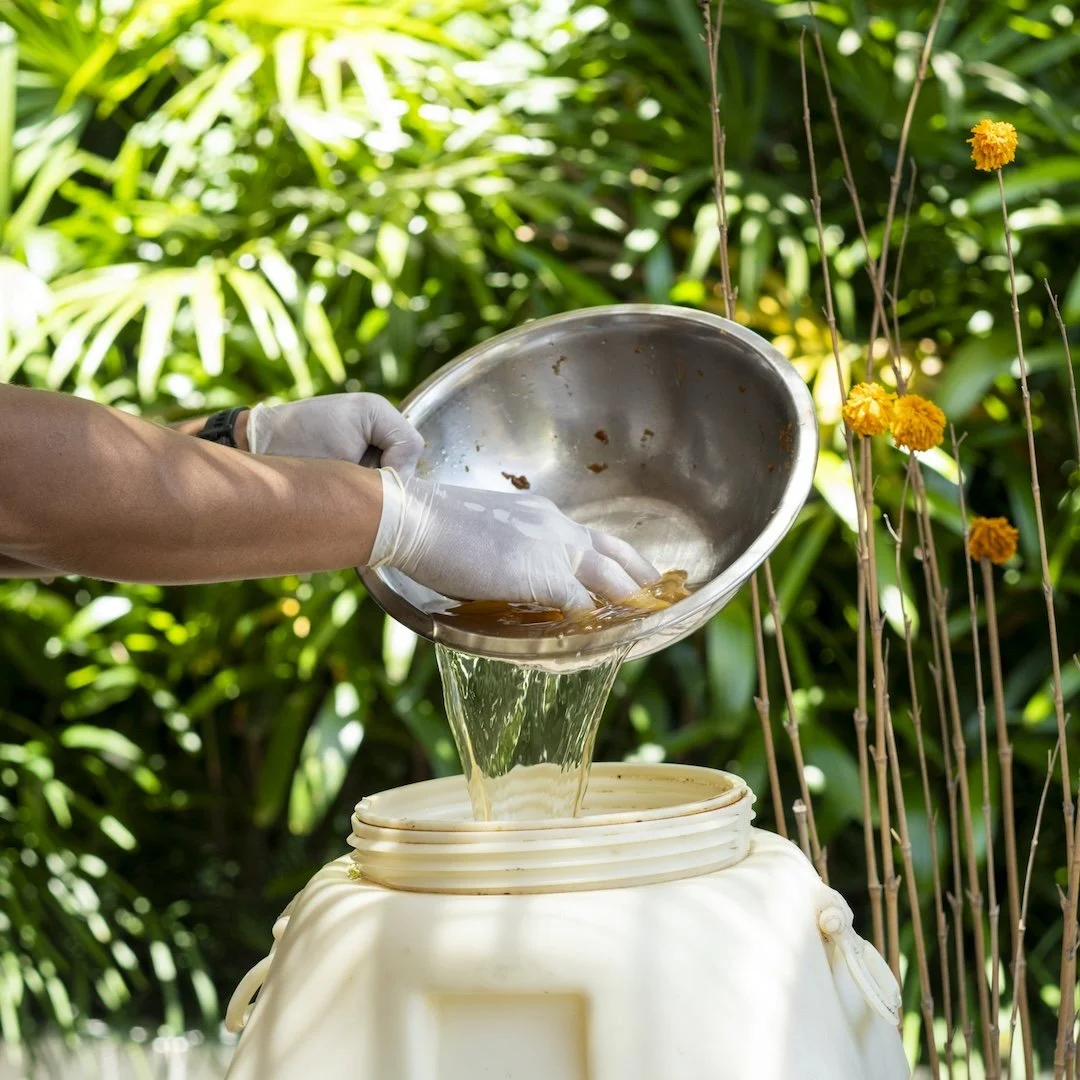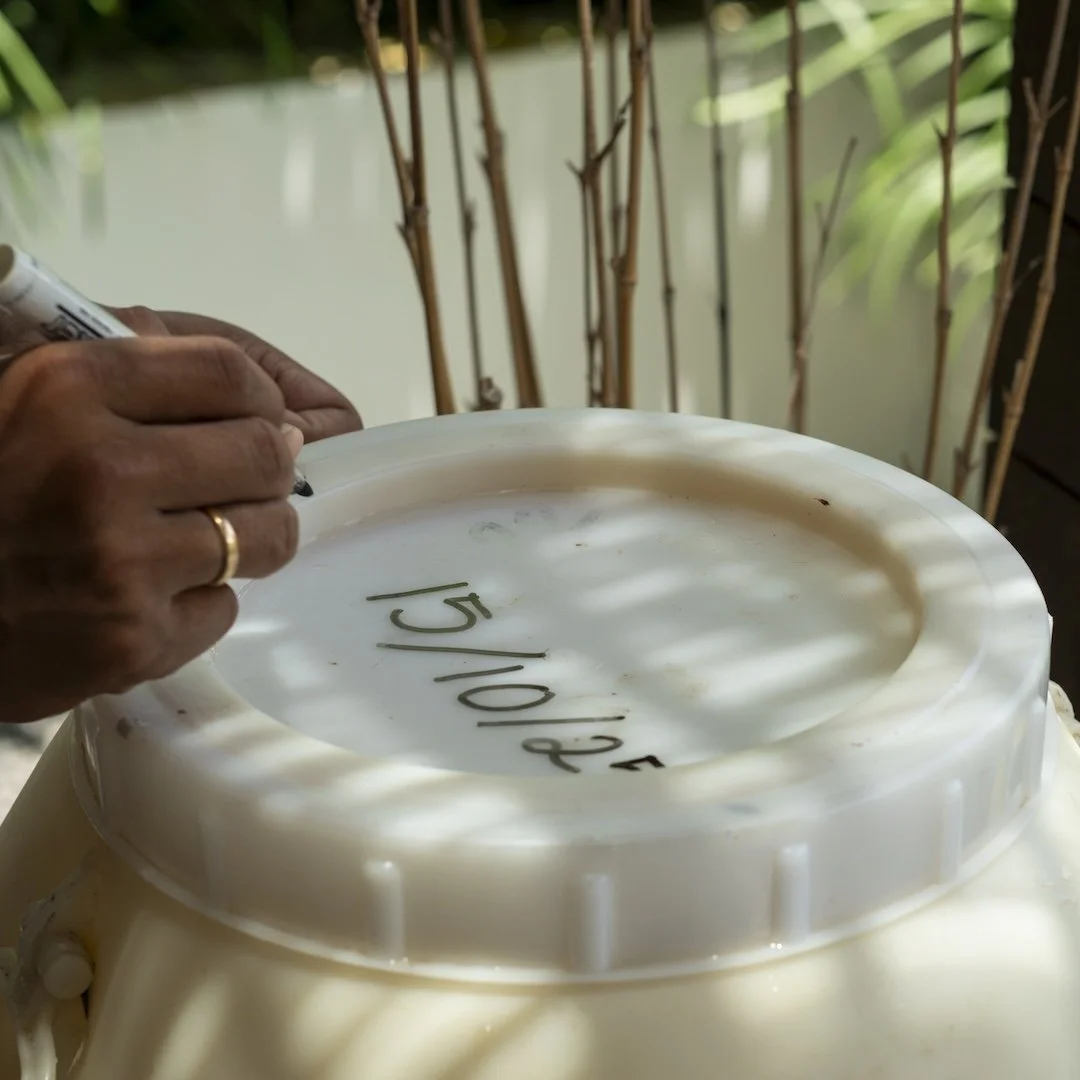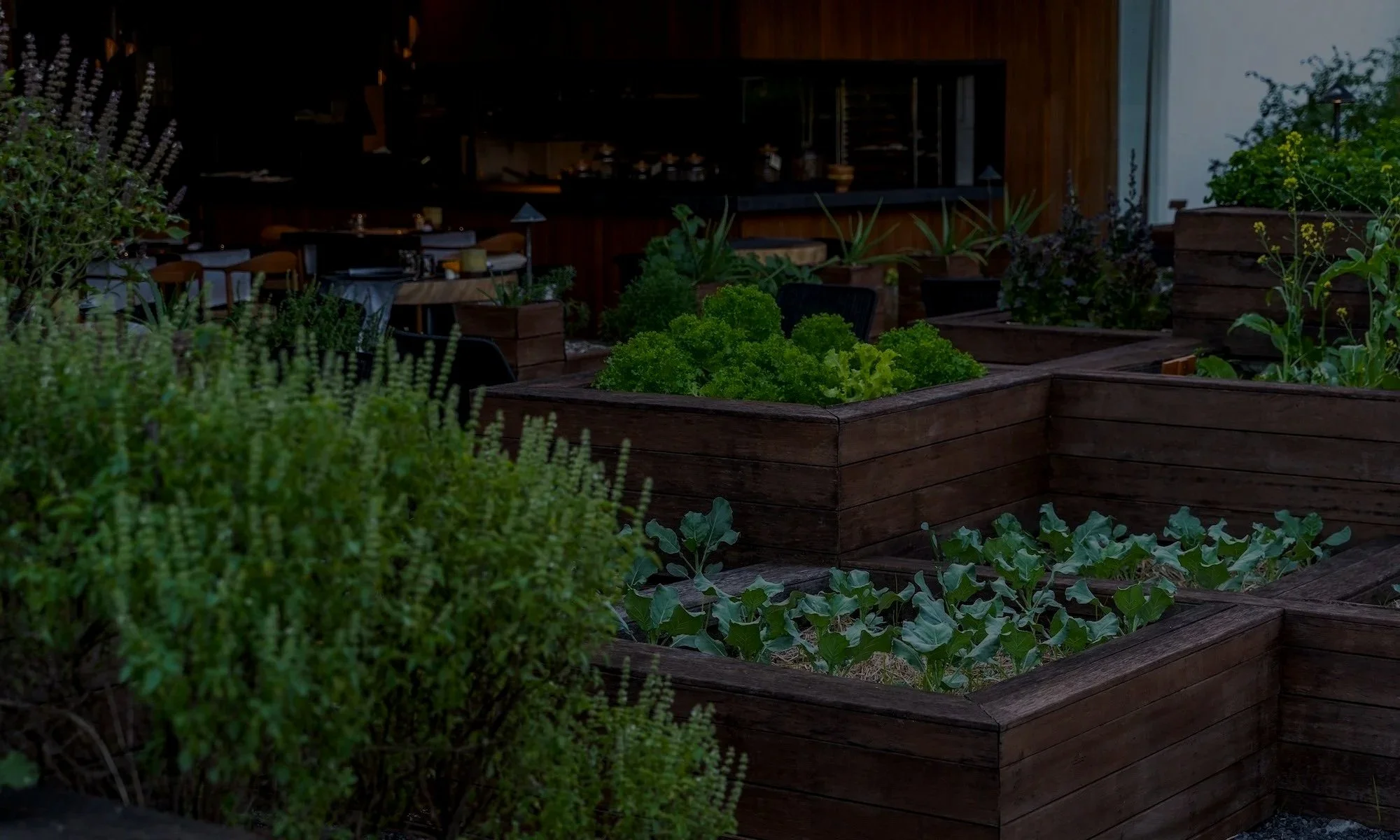
Rooted in Responsibility
From Soil to Soul — Sustainability at Bisma Eight
At Bisma Eight, sustainability isn’t just a practice — it’s a way of life. As a conscious hotel in Ubud, rooted in Bali’s natural and cultural heart, every decision we make — from how we grow our produce to how we reuse and repurpose waste — is guided by deep respect for the environment, our community, and the traditions that shape the island. This thoughtful approach is central to what defines us as one of the best hotels in Ubud, where responsible living and refined hospitality exist side by side.
Our Commitment to the Future
Sustainability at Bisma Eight extends beyond the farm and the kitchen. From reducing single-use plastics and composting organic waste to sourcing locally and empowering our community, we’re continually finding new ways to protect Bali’s beauty for generations to come.
“True sustainability comes when respect for nature, people, and culture moves from policy to daily practice.”
🌱 Be part of the journey
Our journey is about connection — to the land, to our people, and to future generations. Because we believe, true luxury is leaving the world better than we found it. Join us at Bisma Eight and experience sustainability that’s not just seen—but felt, tasted, and lived.
VISION
To keep evolving as a leader in luxury hospitality in Bali by creating meaningful experiences that harmonize with the environment, uplift our people, and preserve Balinese culture — ensuring every stay contributes to a brighter, more sustainable future.
CORE PILLARS
-
Environmental Responsibility – Reduce impact, embrace circular systems, and protect natural resources.
-
People & Community – Empower employees, support local communities, and foster a culture of respect.
-
Cultural Preservation – Safeguard and celebrate Balinese heritage through design, cuisine, and traditions.
♻️ WASTE, ENERGY & CIRCULAR SYSTEMS
-
Since 2018, Bisma Eight has proudly maintained plastic-free operations across all venues — replacing single-use plastics with reusable, sustainable alternatives.
-
We continually optimize our energy systems through:
LED Lighting: All guest rooms and public areas use energy-saving LED bulbs, reducing electricity use without compromising ambiance.
Automated Power Controls: Smart systems automatically turn off lights, air conditioning, and appliances when rooms are unoccupied.
Solar Integration (in progress): We are exploring partial solar energy to power specific operations, reducing dependency on the grid.
High-Efficiency Water Pumps: Pressure-regulated systems minimize water and energy waste throughout our villas and suites.
Appliance Auditing: Regular checks ensure that refrigeration, HVAC, and kitchen equipment operate at optimal efficiency levels.
Guided by Energy Leader Nyoman Mudita, our goal is to establish a measurable Energy Management System (EnMS) — one that ensures every kilowatt contributes to both guest comfort and planetary well-being.
Energy, for us, is more than utility — it is a shared responsibility between design, technology, and mindful living.
-
Rainwater and garden waste are transformed into valuable resources. Water seeps into the biopore tunnels beneath our bamboo courtyard, decomposing leaves into nutrient-rich compost that nourishes the soil and sustains our gardens.
-
Organic waste is carefully sorted and composted using eco-enzymes to accelerate decomposition. After three months, the compost and its liquid byproduct, air lindi, are harvested to enrich our soil. Non-organic waste is responsibly handled by certified vendors and local landfill partners (Rumah Kompos Padang Tegal, Ubud).
-
Our in-house eco-enzyme production turns fruit peels and vegetable scraps into a versatile, natural cleaner, fertilizer, and garden booster. Guests can experience this transformation firsthand through our Eco-Enzyme Workshops, led by Edy and Ade — learning how small actions can inspire daily change.
-
All greywater from rooms is filtered, recycled, tested, and certified to reach pH quality standards. The treated water then nourishes our gardens and fills our lobby pond. Our system strictly complies with Bali Governor Regulation No. 16 of 2016, reflecting our deep respect for the island’s natural laws.
-
Our farm and nursery, The Conservatory, grows herbs, vegetables, and edible flowers for Embers’ breakfast and à la carte menus. Guests are invited to explore the gardens, participate in eco-enzyme workshops, and enjoy farm-to-table dishes like freshly picked sautéed greens.
-
From compost to cuisine, our circular food system ensures that waste nourishes growth. Organic waste becomes natural fertilizer, feeding the soil at Embers Farm — while byproducts from our kitchens are repurposed into zero-waste creations at Copper, Mori, and Embers.
-
Hazardous materials such as oil waste, bulbs, and batteries are safely stored in our temporary B3 waste depository, compliant with Minister of Environment and Forestry Regulation No. 6 of 2021. Partnering with licensed vendors ensures safe transport and responsible disposal.
👥 PEOPLE & COMMUNITY
-
Sustain 97% Balinese employment • Provide leadership and mentorship pathways for local staff
-
Ongoing sustainability and cultural training • Annual Workplace Conduct & Respect Training across all departments
-
Monthly food and monetary donations to local orphanages • Rapid-response aid during regional disasters • Annual community initiatives including tree-planting, Ubud area clean-up, blood donations with Indonesian Red Cross, and local school collaborations
🪷 CULTURE
-
We honor Balinese craftsmanship by prioritizing local artisans and natural materials in all design and renovation projects.
-
Our chefs reinterpret Indonesian recipes using locally grown ingredients — celebrating the flavors and wisdom of Indonesia’s culinary roots.
-
Guests are invited to join our Balinese Dancing Class, Canang Sari Making Class, Jamu Workshop, and Balinese Cooking Class including our temples anniversary ceremonies — experiences that preserve living heritage through practice.
🛏️ In Your Room
-
Reusable glass water bottles, refilled daily.
-
Refillable bath amenities in glass containers — all-natural, vegan, paraben- and reef-safe.
-
Energy-efficient LED lighting and pressure-regulated water systems. Electricity conservation through room automation and manual checks.
🌱 ZERO-WASTE CULINARY CREATIONS
-
Tallow rendered from A5 Wagyu beef.
-
Red radish crackers • Duck oil & duck paste • Dried herb powder from trimmings
-
Vegan jus • Prawn paste & prawn powder • Vegetable stock • Watermelon candy • Fish powder • Vegetable trims & fruit peels processed into eco-enzyme
🧭 KEY ENABLERS
Leadership Commitment Advisor: Weda Sugama | Sustainability Committee & Community Leader: Ketut Wiarta | Energy Leader: Nyoman Mudita | Waste Leader: Wayan Putry | Treasury Leader: Bagus Dharmaika | Asset Leader: Kishore Mirchandani | Food Program Leader: Julio Petrus | Beverage Program Leader: Aryasthana | Communications Leader: Wu Sastra | Secretary: Maria Ng | Assistant Secretary: Komang (left to right)
A Continuous Journey
At Bisma Eight, sustainability is not a destination but a continuous evolution.
We are expanding our zero-waste culinary system to Folk Pool & Gardens, Liap Liap, and No Más Bar — ensuring that every venue within our family reflects the same devotion to mindful living and sustainable hospitality.
The Heart of Our Sustainability — Embers Farm & The ConservatorY
Nestled within Bisma Eight Villas, Embers Farm is where our sustainability journey begins. The farm and its Conservatory cultivate a thriving ecosystem of organic produce, herbs, and flowers that supply our kitchens at Embers, Copper, and Mori. Each ingredient is harvested by hand and delivered natural, fresh, ensuring every dish reflects the season and the spirit of the land.
The Conservatory
The Conservatory is the crops nursery at the heart of our farm, where seedlings are nurtured before being transplanted to the fields. Guests are welcome to visit, enjoy a quiet cup of coffee, and witness the first stages of Ubud’s organic crop cycle.
MEET THE EMBERS FARM COMMITTEE
FARM ADVISOR &
SUSTAINABILITY LEADERSHIP ADVISOR
Weda Sugama
General Manager of Bisma Eight Group, guiding the farm’s vision and sustainability alignment.
FARM COORDINATOR &
SUSTAINABILITY COMMITTEE LEADER
Ketut Wiarta
Oversees farm operations, HR, and community engagement within the sustainability committee.
FARM COORDINATOR &
ENERGY LEADER
Nyoman Mudita
Chief of Engineering, ensuring efficient energy use and sustainable farming systems.
FARM BALANCER
Nyoman Jendra
Places daily Balinese offerings in each shrine across the property, balancing the farm’s spiritual and environmental harmony.
FARM BALANCER & GARDEN SUPERVISOR
Putu Yoga
Maintains all gardens and trees throughout the property, ensuring every plant thrives.
Zero-Waste Products — Innovation from Our Kitchens
Across our restaurants—Copper, Mori, and Embers—our chefs are transforming kitchen trimmings into innovative zero-waste products. These creations reflect our shared ethos of mindful cooking and resourcefulness.
At Mori, sustainability takes form in elegant precision. From premium A5 wagyu, tallow is carefully rendered and reused, showcasing respect for the ingredient’s integrity. Guided by Japanese discipline, every element on the teppan serves a purpose — a reflection of Mori’s belief that luxury and sustainability can exist in perfect balance.
Embers Mediterranean Restaurant
At Embers, culinary creativity meets conscious craftsmanship. The team transforms red radish trimmings into crackers, renders duck fat into oil and paste, and dries herb trimmings into powder that infuses dishes with earthy complexity. These zero-waste innovations reflect Embers’ Mediterranean-inspired philosophy — celebrating honest ingredients, bold flavors, and deep respect for the land that nourishes them.
At Copper, sustainability is more than a practice — it’s a philosophy woven into every dish and drink. The kitchen repurposes ingredients to their fullest potential: creating vegan jus, prawn paste, vegetable stock, prawn powder, watermelon candy, and fish powder from byproducts that might otherwise go to waste. Even vegetable trims and fruit peels are processed into eco-enzymes used throughout the property. Each creation maintains Copper’s signature jungle-rooftop sophistication — proof that mindful cooking can be both responsible and indulgent.
A Shared Purpose
Every zero-waste product is a small act of restoration—reducing impact, respecting nature, and redefining luxury dining in Ubud through sustainability.
BISMA EIGHT GROUP EXECUTIVE CHEF
Julio Petrus
Leading the culinary direction across Bisma Eight’s dining venues, Chef Julio Petrus brings refined craftsmanship and creative vision to every table. With a passion for local ingredients and sustainable practices, he bridges tradition and innovation — guiding each kitchen to deliver honest, soulful food rooted in Bali’s bounty.
MORI HEAD CHEF TEPPANYAKI
Enang Solehudin
At Mori, Chef Enang transforms teppanyaki into an art form — balancing precision, performance, and respect for every ingredient. His mastery of Japanese techniques and dedication to quality elevate each dining experience, turning simple moments at the counter into a symphony of flavor and fire.
EMBERS SOUS CHEF
Pande
A cornerstone of Embers’ kitchen, Chef Pande brings quiet excellence to Mediterranean-inspired cooking. His deep understanding of produce and seasonality ensures that every dish reflects the purity of the ingredients — prepared with finesse and the farm’s spirit of sustainability.
COPPER SOUS CHEF
Teguh Bayuda
At Copper, Chef Teguh blends creativity with balance, crafting dishes that are as thoughtful as they are delicious. His commitment to local sourcing and zero-waste cooking complements Copper’s farm-to-table philosophy, ensuring each plate tells a story of care, craft, and connection to Ubud’s lush landscape.
BISMA EIGHT GROUP
RESTAURANT MANAGER
Aryasthana
Overseeing the restaurant operations across Bisma Eight Group, Arya blends precision, leadership, and heart in equal measure. Working closely with our Assistant Bar Manager Widya, he champions the Group’s zero-waste philosophy — ensuring every idea, ingredient, and innovation moves seamlessly from concept to guest experience. His dedication to service, sustainability, and team synergy helps shape dining spaces where mindful hospitality comes to life every day.
BISMA EIGHT GROUP
ASSISTANT BAR MANAGER
Widya Purnamasari
Guiding the bar program across Bisma Eight Group’s venues, Widya brings intention, creativity, and sustainability to every pour. With a deep commitment to zero-waste mixology, she transforms overlooked ingredients into innovative house-made liqueurs, ferments, and infusions. Her approach blends technique with imagination — redefining what mindful drinking can be, one thoughtful creation at a time.
Eco-Enzyme Workshop — Turning Waste into Wisdom
At Bisma Eight, waste becomes a resource. Our Eco-Enzyme Workshop, hosted at Embers Farm, teaches guests and staff how to transform organic waste into powerful, natural cleaners and fertilizers.
This hands-on experience is led by Edy and Ade, who guide participants through the fermentation process using fruit peels and kitchen scraps. The resulting eco-enzyme helps reduce chemical waste and supports organic farming both at our properties and beyond.
By reusing what would otherwise be discarded, the workshop embodies Bisma Eight’s commitment to circular sustainability—creating change that starts at the source and spreads through the community. Join the next workshop! →
ECO-ENZYME WORKSHOP LEADER &
EMBERS RESTAURANT SUPERVISOR
Edy
Edy plays a key role in Embers’ sustainability vision. As Restaurant Supervisor and Eco-Enzyme Workshop Leader, he guides guests and team members in turning kitchen waste into natural cleaners and garden boosters — inspiring everyone to see sustainability as both creative and meaningful.
ECO-ENZYME WORKSHOP LEADER &
EMBERS BAR CAPTAIN
Ade
As Embers’ Bar Captain, Ade brings his creativity behind the bar to sustainability. Leading Eco-Enzyme Workshops alongside Edy, he shows how simple fruit peels can become eco-friendly solutions — blending innovation, teamwork, and care for the environment in every session.


